
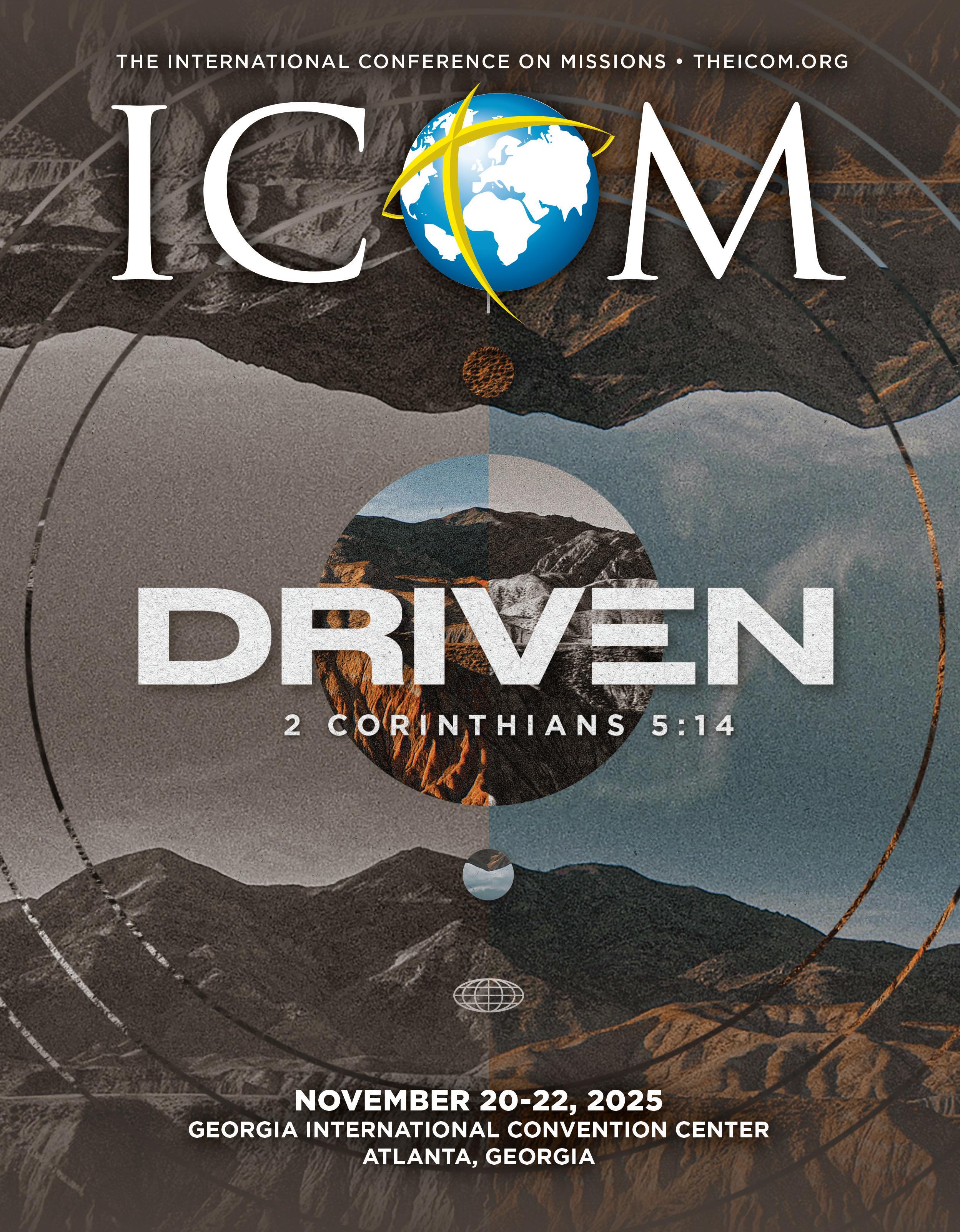
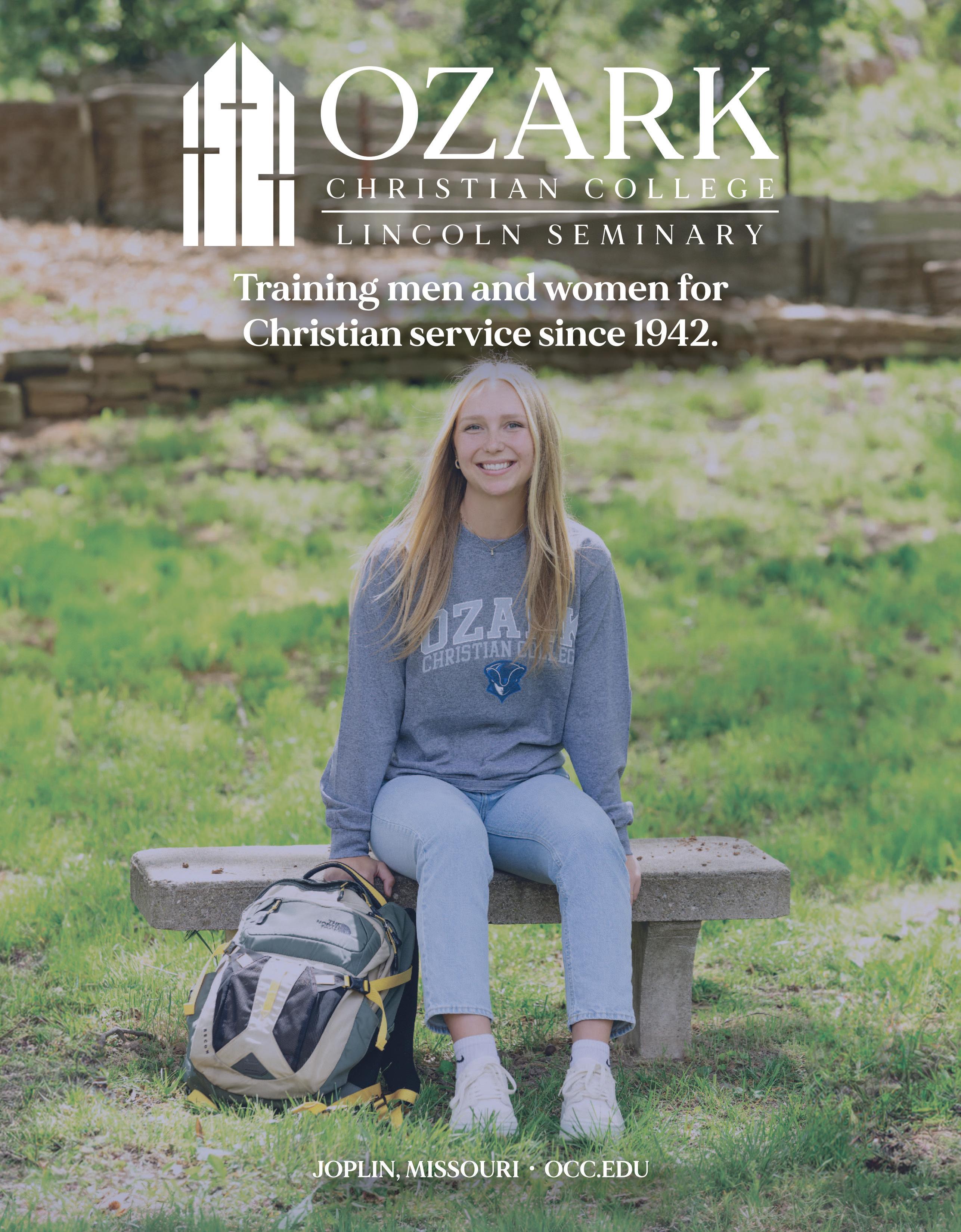






To focus outward means that the church’s primary concern is the people outside its walls and influence. It means that the church’s assets—its money, its talent, its time, and its facility—are focused toward reaching into that group. Every church will tell you that they have an outward focus. They know that Jesus’ great commandment and great commission are clear about it. The painful reality is that even though churches would claim to be outward, their activity, teaching, finances, ministries, and even architecture tell a different story. There is a gravity that pulls the church inward where the concerns are for those inside its walls. Church budgets reflect most of the money spent to minister to the saved. The building is filled with classrooms used only an hour or two a week. The songs chosen for worship are the ones church people know and love. Church boards and by-laws are designed to keep it that way, being weighed down with bureaucracy and tradition. Any changes to reach out in new ways are quickly squelched by the status quo. The fact that very few unfamiliar faces appear in church
is a constant reminder of missing the mark. Many of these traditional churches are so afraid of how change would affect the usual that they would rather curse the darkness than venture out into the darkness and light a candle.
Virtually everything else in society is in a constant state of motion, reinventing itself again and again. Of all the institutions in a community, the church represents one of the most stable. Its stability is tied to its resistance to change. Many view that stability like the feel of an old pair of jeans or a comfortable blanket to wrap up in. It’s safe and predictable, like an oasis in a crazy world surrounding you with happy memories and generations-old friendships. It’s a lot to give up for people who don’t value what you do. Even so, Jesus didn’t call his children to personal comfort, but to his commandment and commission.
Some might see this approach as out of balance. Don’t we have a responsibility to take care of those who have come into a relationship with Christ? My experience has taught me that when we concern ourselves with the needs that God has called us to, he will take care of ours. When we focus on our own needs, we not only marginalize our God-given responsibility; we replace dependence on him for independence. We push him out of all the ways we experience him meeting our needs. The children of Israel were punished by being made to wander in the desert for 40 years because of the fear that replaced their faith in God. For me, Numbers 14:2-3 records what pushed God over the line. It says, “If only we had died in Egypt! Or in this wilderness! Why is the Lord bringing us to this land only to let us fall by the sword? Our wives and our children will be taken as plunder” (New International Version). They lacked faith in God’s ability to take care of them, especially the weakest of them. God responded by granting their request. Every one of them, with the exception of two spies, died in that desert and the children (that God was considered incapable of providing for) were the ones who took the land 40 years later. When we cast all our cares on him, expending our energy being outwardly focused, I would have a hard time believing that God wouldn’t honor that in a mighty way.
For an outwardly focused church, the competition is not the other churches in the area. The competition is every other available use of time. For people outside of an intimate, personal relationship with Jesus Christ, Sunday is a great day to sleep in, read a good book, or just spend time with family. It’s an opportunity to get some of those chores crossed off the list or get over last night’s hangover. An outwardly focused church confronts the question, “Why would I give up these other things to come to church?” Is there something more valuable there that would justify my spending some of the most important currency I have: my time?
Most people have already answered that question. The answer is based upon a pre-conceived notion of what church is. Honestly, the church is fighting an uphill battle in American culture. The church is seen as homophobic, sheltered, too political, and judgmental. Even though we would argue with these perceptions, there is no denying that many churches are either shrinking or closing, as they fail to figure out ways to bridge the cultural gap and remain uncompromising with biblical truth. Prognosticators present a pretty dismal future for the church. Churches have a hard time engaging with the prevailing culture. It’s not an easy road and certainly not business as usual. First, it’s hard to hit a moving target. Culture is constantly morphing, requiring never-ending adjustments and evaluation. It requires exploration of changes that reach into areas that may not be doctrinal but are certainly understood as foundational. Instead of embracing the changes necessary to engage the culture we find ourselves in, we end up competing with each other for those who already attend church. We try to build a better mousetrap, so to speak. That’s why the majority of growth in American churches is no growth at all—even in megachurches. It is simply people moving from one church to another.
In my next column, I’ll share how we might address these issues to sharpen our outward focus.
@_jerryharris /jerrydharris
ISAAC ERRETT
Devoted to the restoration of New Testament Christianity, its doctrine, its ordinances, and its fruits.
team Jerry Harris, Publisher
Shawn McMullen, Editor
Rick Cherok, Managing Editor
Abby Wittler, Designer
Renee Little, Operations
Allison Harris, Marketing + Advertising
Christine Reiner, Customer Service

Subscription Information
To order Christian Standard for yourself, your church, or your group, visit christianstandard.com or contact Customer Service. Bulk pricing is available.
CUSTOMER SERVICE
720.598.7377
info@christianstandardmedia.com
Volume CLX. Number 6 Christian Standard (ISSN 0009-5656) is published every other month by Christian Standard Media at 16965 Pine Lane, Suite 202, Parker, CO 80134. Periodicals postage paid at Parker, CO, and additional offices.
All Scripture quotations, unless otherwise indicated, are taken from the HOLY BIBLE, NEW INTERNATIONAL VERSION NIV®. Copyright ©1973, 1978, 1984, 2011 by Biblica, Inc. Used by permission of Zondervan. All rights reserved.
POSTMASTER: Send address changes to Christian Standard Media, 16965 Pine Lane, Suite 202, Parker, CO 80134. Phone: 1-720-598-7377.
SUBSCRIBERS: Send address changes to Christian Standard, 16965 Pine Lane, Suite 202, Parker, CO 80134. Send old and new addresses, complete with zip codes, at least six weeks before delivery date.
ChristianStandardis published by Christian Standard Media, www.christianstandardmedia.com.
Email: cs@christianstandardmedia.com Website: www.christianstandard.com
Copyright ©2025 by Christian Standard Media
Printed in USA

Richard
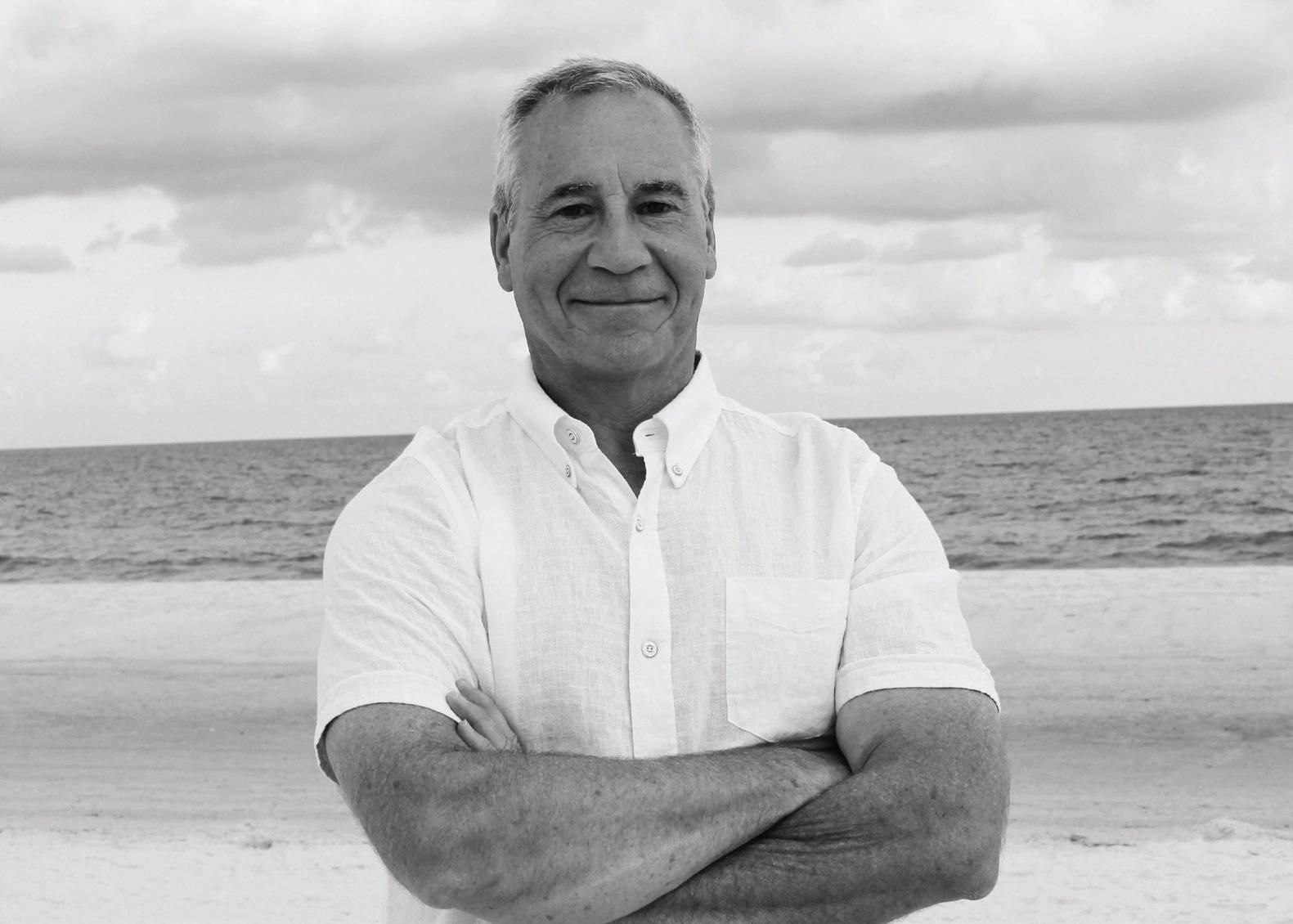
Author and speaker Simon Senik is well known for his famous TED Talk, “How Great Leaders Inspire Action,” and the book that followed, Start with Why
His central idea is simple but powerful; great leaders and organizations inspire people by focusing first on why they exist, and then on what they do and how they do it. The principle applies equally well to the work of evangelism and our motivation for sharing the gospel.
If our focus is primarily on what (telling people about Jesus) or how (training and tactics), the work of evangelism can feel forced and uncomfortable. But once the why sinks in, everything changes. Our perspective shifts from pressure to passion, from awkwardness to urgency, from guilt to gratitude.
Rather than a scripted effort, evangelism that begins with why flows naturally from our personal relationship with Jesus Christ and our desire that others experience what we’ve found. For Christians, sharing our faith is shaped by several whys
Talk to a newlywed. Or a new parent or grandparent. It doesn’t take long to discover what’s on their mind. They’ll gladly—and unashamedly—tell you about the ones they love. Is there any reason to think that works differently for the Christian? As our love for God grows, it naturally finds its way into our conversations. We share our faith because we love the God who makes our faith possible.
“But you are a chosen people, a royal priesthood, a holy nation, God’s special possession, that you may declare the praises of him who called you out of darkness into his wonderful light” (1 Peter 2:9, New International Version). We’ve been forgiven of our sins. We live with peace and joy and hope and purpose. What do we do as a result? We declare the praises of the God who saved us, the one who makes our present and future possible.
We share our faith with others because we’re grateful. Jesus told a man he delivered from demonic possession, “Go home to your own people and tell them how much the Lord has done for you, and how he has had mercy on you” (Mark 5:19). Seen this way, sharing our faith isn’t a duty; it’s our grateful response to God’s mercy.
“When he saw the crowds, he had compassion on them, because they were harassed and helpless, like sheep without a shepherd” (Matthew 9:36). When we see the people around us as Jesus sees them—lost, confused, hurting, and hopeless—our hearts go out to them. We want them to have the same hope we have. The gospel truly is good news and sharing it with others is one of the most loving, kind, and compassionate things we can do.
The message of the gospel carries eternal implications. Every person who comes into this world enters as an immortal soul housed in a human body. That soul will spend eternity either in heaven or in hell. It’s a powerful why. The relationship a person has with Christ in this life matters forever. When we share our faith with others, we do it knowing their eternal destiny is at stake.
Above every other why, we share the gospel to glorify God. Sharing our faith with those around us clearly blesses those who respond to the good news. But in an even greater way, leading others to faith in Christ brings God the glory he deserves.
You and I have been created for a single purpose—to bring glory to God. God confirmed this truth through the prophet Isaiah: “everyone who is called by my name, whom I created for my glory, whom I formed and made”
(Isaiah 43:7). The psalmist understood this and urged God’s people to “Declare his glory among the nations, his marvelous deeds among all peoples” (Psalm 96:30). Evangelism isn’t only about bringing people to salvation (as important as that is). It’s about honoring the one who created and redeemed us. God is worthy of all glory, honor, and praise—the more, the better.
Revelation 7:9-12 gives us a glimpse into a praise event in heaven.
After this I looked, and there before me was a great multitude that no one could count, from every nation, tribe, people and language, standing before the throne and before the Lamb. They were wearing white robes and were holding palm branches in their hands. And they cried out in a loud voice: “Salvation belongs to our God, who sits on the throne, and to the Lamb.” All the angels were standing around the throne and around the elders and the four living creatures. They fell down on their faces before the throne and worshiped God, saying: “Amen! Praise and glory and wisdom and thanks and honor and power and strength be to our God for ever and ever. Amen!”
Every immortal soul who comes to faith in Christ adds to the number of those who will glorify God in this world and in the life to come. And he is worthy of that glory.
When we start with why, sharing our faith is not a burden. It’s the most natural thing we can do.

@shawn.a.mcmullen
/shawn.a.mcmullen
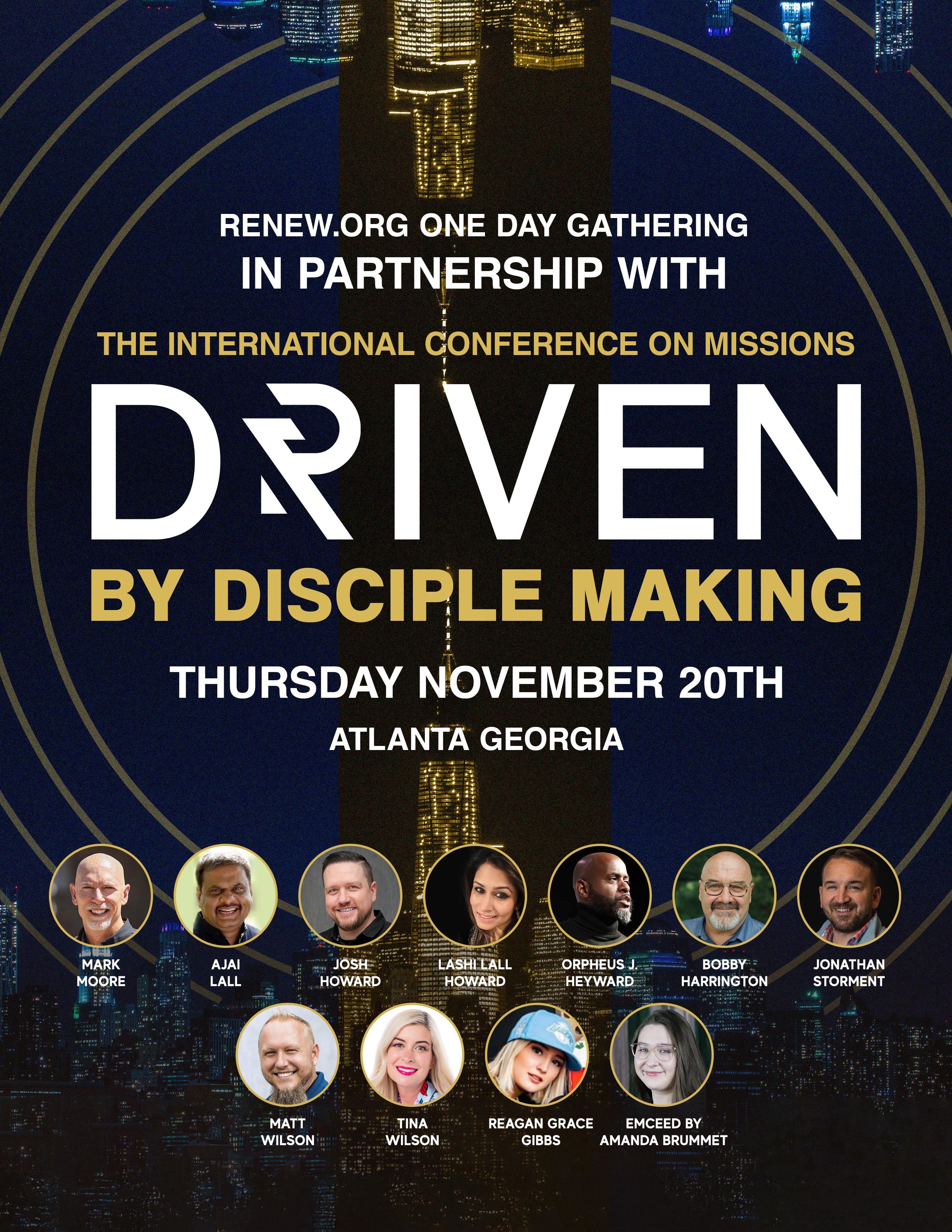




Fly a kite on a completely windless day. You’ll run back and forth, sweating and frustrated, dragging lifeless fabric behind you. Eventually you’ll come to the inescapable conclusion: We need wind. That’s where many churches find themselves today—exhausted from activity, implementing the latest strategies, yet sensing something essential is missing. That something is the wind of the Holy Spirit.



e 2:effective elders
By James R. Estep
“Where’s Waldo?” If you were a child in the 1990s, or even a college student, you probably spent copious hours diligently searching brightly colored pages in oversized books hoping to find an iconic figure. Characterized by his blue pants, red-and-white striped shirt and cap, with an impish grin and unruly hair, circular glasses and wooden cane, not to mention his striped socks . . . who could miss Waldo? Yet, he always seemed to be either lost or in hiding, needing finding. The whole series of books is founded on one assumption: Waldo needed finding!
We live in a world of real life Waldos. In 2024 the Washington Post reported that 29 percent of Americans identify as “nones” in terms of religious affiliation, with Axios sharing that 49 percent of the U.S. population rarely or never go to any religious services. People are “lost.” Unfortunately, our enthusiasm for finding a fictitious cartoon character has apparently surpassed our interest in finding reallife Waldos, lost people, those who are unchurched and unreached.
In April 2025 Carey Nieuwhof published his “Five Disruptive Church Trends That Will Rule 2025,” based on studies of congregations across North America. In it, he assessed, “Evangelism is on life support in most churches.” While the conversation among church leaders over the past five years has been dominated by disciple-making, two issues emerged: (1) “Fuzzy and unclear” descriptions of disciple-making, and (2) Evangelism is absent from disciple-making! Based on a recent Barna Group study, when ministers were asked to assess the evangelistic outreach of their congregations, they reported that it had dropped from 13 percent in 2015 to just one percent in 2023!
How can evangelism become a priority for the church? What can be done to reverse the current circumstances? First, start recognizing lost people. How familiar are you with the community in which you minister? Not just the congregation, but the community. Where are the lost and broken people? What opportunities for ministry and sharing the gospel does this present? Studying the neighborhood and community around the congregation, receiving a demographic study and determining who God has specifically placed within your reach is indeed a reminder of reality beyond the congregation’s walls.
Second, equip individuals to do evangelism . When I served with the Lincoln Christian Institute, the most frequently requested seminar was “How to Share My Faith,” a seminar on evangelism. Churches cannot assume people know how to evangelize. They need both training and resourcing to effectively share the gospel.
Third, encourage people to do evangelism. Highlighting the opportunities within the community, sharing first-person videos of conversion stories, and identifying those who have actively engaged in evangelism are ways to encourage others to do evangelism. Stories demonstrating the power of the gospel always motivate others to share their faith.
“If Christ accepts someone, we need to accept them as well.
Fourth, become a welcoming church . If Christ accepts someone, we need to accept them as well. We need a discipleship pathway, a “What’s Next” for someone who has accepted Christ, a path forward for new believers.
Crux of the Evangelism
Three parallel parables are found in Luke 15, all about reaching out to the lost. Jesus teaches about the lost sheep (3-7), the lost coin (8-10), and the lost son, better known as the prodigal son (11-32). In all three instances, something is lost and is found. Upon finding each lost item, a celebration occurs! This is, of course, preceded with a period of intense desire and diligent search for the lost item; like the father who saw his returning son “while he was still a long way off” (v. 20). Naturally before a search can occur, we must acknowledge an absence. Why look for something that isn’t lost? But all of this is contingent on one final observation: You have to value that which is lost. If it’s just a dumb sheep who has wandered off, not even realizing it's lost, who cares. If it’s just one coin, it may not be worth bending over to pick it up, like a penny falling out of your pocket. If the son is prodigal, then he is getting what he deserves. He asked for it; let him face his own consequences. We would never notice their absence, conduct a search, or celebrate upon their return. Evangelism begins with valuing lost people.
It comes down to this: Do you care? Do you value lost people? Do you have the same compassion for them that Christ had for you (John 3:16; Romans 5:8)?
Lead Well!
about the author

engage
By Tyler McKenzie
I’m getting a doctorate specializing in ... parenting
For those who follow the Engage column, a little personal-life update. About the last four years, I’ve been working on a doctorate at Wheaton College, and I am almost done! The last thing left is a capstone qualitative research project on a topic of my choosing that impacts the church.
I started praying about what that topic should be for Northeast two years ago, and I felt God nudge me to study parents. Specifically, my goal is to understand how Christian parents think about passing down their faith to their kids. As I prepare to do my own research, I have reviewed the most up-to-date and respected studies already done in the field of intergenerational faith transmission. While reading, I’ve honed a list of practices that jumped out of the research. In this column, I’ll share with you my top 10 ways parents can increase the probability they pass down their faith … according to the data!
the #1 most decided data point for passing faith down
1. Parents are, by far, the biggest influence on the spiritual lives of their kids. Which tells me that the role of a church is not to be the primary spiritual influencer, but to equip parents to be the primary spiritual influencer. We get them an hour a week; parents get them the rest.
This first point is by far the most decided datum out there. It is essential for every parent to embrace.
I highlight this for two reasons. First, I want to put healthy pressure on parents to take parental responsibility. We live in a day where we are outsourcing childrearing. Many parents are too busy with work or “selfcare” to be involved. We hire professional childcare, teachers, psychologists, coaches, pastors, etc., to do our job. But nothing can replace your influence. We should be sacrificing time, money, and personal ambition to raise up leaders of consequence for the kingdom of God.
The other reason I say this is because a lot of parents don’t believe they are influential. It’s long been a parenting maxim that, “Once your kids get to middle school, there is a shift from parent to peer influence.” That isn’t what the data says. Peer pressure is real, no doubt. Once they hit middle school, you aren’t cool anymore. But no matter how much your kids roll their eyes at you, parents have more power than they think.
The Rest of the Top 10
2. Daily, parent-initiated, kid-led faith conversations. If parents have the influence, then this is how the data says they should be using it … daily faith conversations.
But here’s an interesting twist! These conversations can’t be parent-led monologues. The data shows that the most effective conversations are kid-led. The parents are responsible for creating an environment of safety and normalcy around faith conversations, but the conversations should be child-centered. The kid asks the questions. The kid does most of the talking. The parent meets the child at their point of curiosity, and then uses wisdom to know when to speak, when to ask a follow-up, or when to offer honest advice. Barna found that mothers and fathers are the first place teens go to talk about questions regarding faith and the Bible.
3. Authoritative parenting style over authoritarian or permissive.
The terms authoritative, authoritarian, and permissive are not my own. They are used in psychological research to describe a spectrum of parenting styles that range from strict (authoritarian) to soft (permissive). The authoritative style is the word used to describe the magic middle that pulls the good of both sides together.
The authoritative style is:
• High on expectations and direction [like authoritarians], but also high on warmth and affection [like permissives].
• High on discipline and accountability [like authoritarians], but also high on emotional responsiveness and communication [like permissives].
• Caring but not indulging.
• Clear on boundaries while encouraging freedom therein.
• Firm in convictions but flexible in applications.
Not only did the research find this style to be most beneficial for the healthy development of children, but this style is also the most effective at transmitting religious beliefs from parent to child.
4. Fathers matter a lot. This is not to diminish the vital role of mothers. It is an acknowledgement that fathers are more often absent or passive in the parenting journey. The presence of a godly father has extraordinary power.
5. Grandparents matter a lot too! Vern Bengtson, a researcher in the field, found that the presence of a faithful grandparent can replace the role of a faithless or absent parent (See Vern L. Bengtson, Families and Faith: How Religion Is Passed Down across Generations).
6. The 5:1 Ratio. That’s not five kids to one adult mentor, that’s five adult mentors to every one kid. Powell
and the Fuller Institute found that when kids are mentored and loved by a broader Christian village, it has a profound impact. It creates an intergenerational village of spiritual support where youth see faith modeled in several adult lives and have multiple safe adults to confide in.
7. Stable marriage, united in faith. The data shows kids are far more likely to embrace their parents’ religious beliefs if their parents stay married and share the same faith convictions. Go figure!
8. Generally warm and affirming relations with your kid. This posture should be our reflex as parents.
9. The first two weeks of college are critical. I know this seems random, but more than once the research showed that the beginning of college is pivotal. Getting your child plugged into a faith community during that time strongly influences their long-term spiritual habits.
10. Good theology must serve as the foundation for parenting. In the research, Smith’s team found that most Christian parents aren’t passing down biblical faith. You may remember Smith’s work in the early 2000s on “Moralistic Therapeutic Deism” among teenagers. The teens he studied then are now the parents of the emerging generation. We are seeing their childhood faith leak into the emerging generation. The data shows we are passing down something like a Christianized version of the “the American Dream.” Most parents talk about religion as a means to the higher goal of attaining a good, comfortable, happy, moral life. To be clear, there is nothing wrong with hoping your kids are happy and moral, but when we teach our kids that faith serves this higher end, we aren’t actually passing down orthodox Christianity.
There’s my 10! More on this to come as my research develops. My prayer is this will inform your own respective ministries. about the author


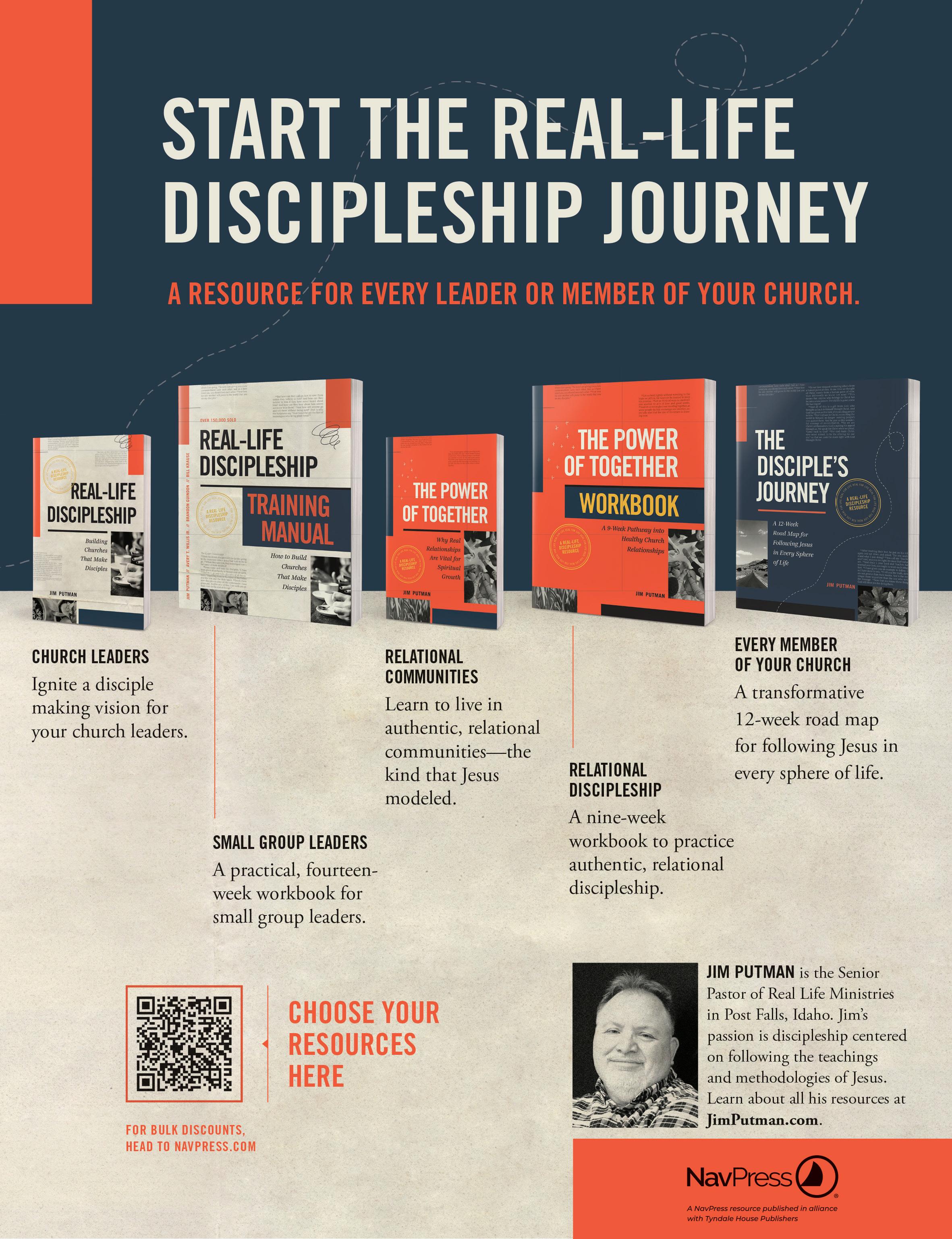
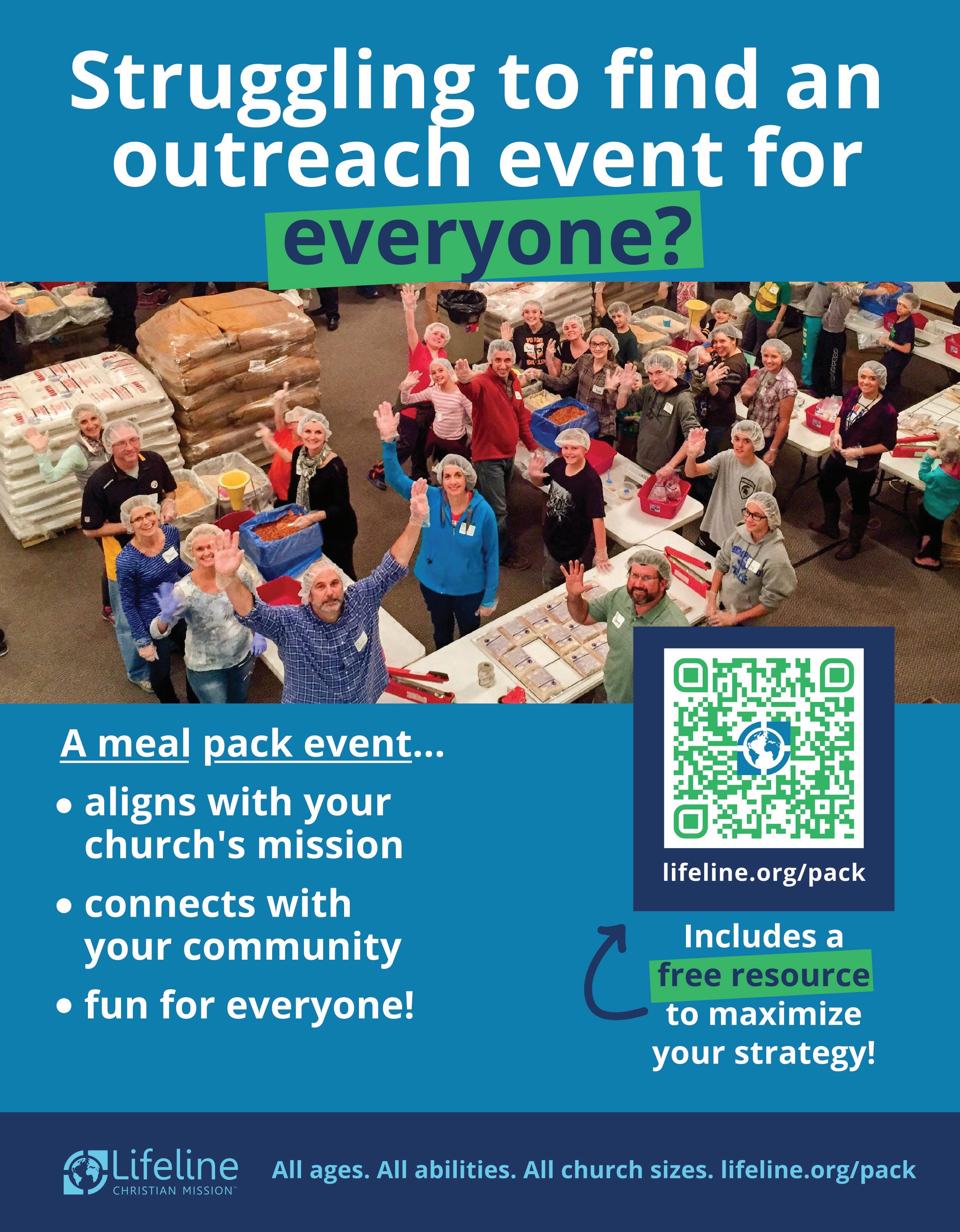

Twenty-five years ago, a young African couple had a dream. Unlike most newlyweds, theirs wasn’t just about the life they’d build together. It was about serving the poor—the most disadvantaged of Africa.
The couple began working with community leaders in the oldest slum in Africa to identify the 50 poorest, most distressed four-year olds in the community and started a preschool. This began what would become Missions of Hope International (MOHI). During this, their 25th anniversary year, the ministry now has 38 schools in Kenya, another in Liberia, and one opening soon in Ethiopia. The schools now serve over 32,000 students and are “Hope Centers,” places of robust holistic ministry that transform lives, families, and communities.
By Laura McKillip Wood
Mary Kamau was the seventh of 20 children in a polygamous family in rural Kenya. She made her way to Nairobi to the university, where she hoped to escape poverty. During her first year, she committed her life to Christ and began volunteering in a ministry in the Nairobi slum. Wallace Kamau came from a well-resourced Kenyan family and graduated from the country’s best university with a degree in accounting. He rose quickly in the business community, first as an accountant at PricewaterhouseCoopers, then as CFO of an insurance company. Mary and Wallace met at a prayer meeting. Their relationship was built on love for each other, love for God, and a deep burden for the poor.
Missions of Hope International began in the Nairobi slums with the goal of serving not just the poor, but the poorest. In Nairobi, nearly three million people live in eight-by-tenfoot shanties in giant contiguous slums. One shanty may house 10 or more people. There is no government electricity, no running water, no police protection, no fire protection, no sewers. The slums are violent places.
Sociological terms are sometimes too neat and tidy and do not tell the real story. “Food insecurity” speaks of anxiety and concern, but in extreme poverty it can mean three or four days since the last meal. “Casual labor” doesn’t sound bad, but in Nairobi it means parents up before dawn, walking into the city to find someone to hire them for the day. If it’s a good day, they make $2. If it’s a bad day, the children do not eat. Eighty percent of the women are involved in commercial sex, primarily to get money to feed their children.
MOHI has four “pillars” in its holistic approach: education, spiritual development, economic empowerment,
and basic medical care. Founded and led by Africans, MOHI does not impose solutions on any community but seeks to work with them to empower them to improve their community, beginning with education. Most parents in extreme poverty welcome a school as a way out of poverty. With each school, MOHI starts a church. The church pastor is also the school chaplain, connecting the pastor with families. MOHI’s students typically get above-average marks on national exams. Last year one of their earliest graduates was sworn into the Kenyan bar as a lawyer, and a current graduate scored 411 on a national exam. The country’s highest score was 428.
Once a child is in school, social workers reach out to the parents, helping them develop skills to make a sustainable living. One way they do this is through an eight-week program designed to help them develop a business plan and launch the business. Families often go from making an inconsistent $2 a day to making $4-5 a day every day— a total game changer. To date, MOHI has trained more than 15,000 people to operate their own businesses.
MOHI also has a trade school, certified by the government, to offer technical training for jobs like auto mechanics, construction trades, fashion and design, catering, computer technology, and others. Nearly 1,500 a year are now graduating in these growing programs.
The medical care pillar involves both prevention and cure. The child-survival program guides expectant mothers into healthy practices that can be lifesaving for both the mother and child. In some tribal areas, women give birth to 10-12 children, knowing half will die. Many of those deaths and the associated heartbreak are preventable.
Some illnesses are curable with the right medications. Clinics within reach and school nurses can improve overall health and reduce reliance on witch doctors, who historically might have been the only presumed option.
There’s a saying at MOHI: “Everything is spiritual.” Spiritual life is integral to everything Missions of Hope does. Baptisms are frequent. One recent year there were 69 baptisms at the trade school. Their joy-filled spirituality permeates every program.
Although MOHI is an African-led organization, Americans play a key role. Americans give monthly to a sponsorship program to support students, including a daily school feeding program. American sponsors write notes, send gifts, and visit their sponsored children. Many Americans play a first-hand role in the ministry. Last year over 1,200 Americans from U.S. partner churches went on short-term trips to serve alongside MOHI’s Kenyan staff.
Over time, the work of the mission brings cultural change, sometimes to centuries-old practices. In remote areas, fathers still sell their seven-and eight-year-old daughters to much older men for a small flock of goats. The girls become their third or fourth wife, betrothed until the age of 10 or 11 when weddings take place. “Early marriage” is illegal, but the law is not enforced.
When MOHI starts a school and a church in a rural area, the pastor and the head teacher go hut to hut, talking one at a time with each father. They explain the benefits of educating daughters and how it benefits the father as well, asking his permission for his girls to go to school. One by one, girls are putting on school uniforms and learning about the world around them and their heavenly Father.

about
the author

Laura McKillip Wood, former missionary to Ukraine, now serves as bereavement coordinator and palliative care chaplain at Children's Hospital and Medical Center in Omaha, Nebraska. She and her husband, Andrew, have three teenagers.
/laura.wood2
@woodlaura30
@woodlaura30
lauramckillipwood.com
lauramckillipwood@gmail.com



Peace doesn’t always feel powerful—but it is. Especially when it’s planted in the middle of a storm.
Rudy has always been the calm one in our relationship. Early in our marriage, I often misread that calm. In the heat of conflict, while I was expressing every emotion I felt, he would sit there, quiet and still. Almost untouched by it all. To be honest, I thought it meant he didn’t care. It would be years before I’d understand what was really going on inside him—and who planted that seed in the first place. Her name was Irene.
By Rudy & Osharye Hagood
Marriage, in all of its beauty, is also a place where storms roll in, where soil gets dry, and where roots are tested. In the middle of this sacred ground, God calls us to plant peace. Not the peace that shows up after resolution, but the kind that must be sown in the heat of conflict, during miscommunication, and while the future still feels uncertain. Peace, after all, is not just a feeling. It’s a fruit. “But the fruit of the Spirit is love, joy, peace” (Galatians 5:22, New International Version).
Peace is evidence that the Spirit of God is present not just in our personal lives, but in our marriages. But unlike quick fixes or emotional highs, peace doesn’t always come easily. It’s not a flashy seed. It often looks like an unremarkable one, buried in humility, covered in discomfort, watered by restraint, and hidden in quiet surrender. And yet, those are the very conditions in which the strongest trees grow.
If you’ve ever seen a tree hundreds of years old, its trunk thick, branches vast, and roots stretching far, you probably wouldn’t think of the cracked, unimpressive seed it came from. But it’s true: some of the strongest trees in the world begin with what looks broken.
That’s how peace works in marriage. It often begins in moments that feel invisible: When one spouse chooses to lower their tone instead of raising their voice. When one listens, even when they feel unheard. When the goal shifts from winning the argument to winning the heart. “A gentle answer turns away wrath, but a harsh word stirs up anger” (Proverbs 15:1).
These moments might not feel powerful, but they are seeds. And seeds don’t grow by being seen. They grow by being surrendered.
“Peace planted once doesn’t just grow; it multiplies. Like a tree that bears seed after seed, peace in marriage begins to cultivate an entire culture. One decision to deescalate instead of retaliate can shape your children’s understanding of love. One prayer whispered amid-conflict can deepen your spiritual connection. One moment of grace can rebuild trust. And trust? It becomes shelter. It becomes shade. It becomes legacy. “Peacemakers who sow in peace reap a harvest of righteousness” (James 3:18).
I’ll never forget a lesson my mother-in-law, Irene Hagood (whose name literally means peace), taught me years ago. I was venting about a difficult conversation that had escalated, and she calmly said, “Once that person starts becoming argumentative and loud, just say, ‘I understand that you’re upset right now, and I’m going to allow you time to cool down because I can’t allow you to talk to me like that—I must keep my peace.’”
At the time, I didn’t realize how deeply spiritual that advice was. But now I see; that’s the seed. Not shouting back. Not matching energy. Not proving your point in the heat of the moment. Just planting peace with your words, your posture, and your boundaries.
Over the years, I’ve come to see Rudy not as emotionally detached but spiritually grounded. He wasn’t avoiding conflict; he was protecting peace. These days, we even joke about it. I’ll ask, “Are you being patient, or just calm?” Because calm and peace can look the same—but they come from different places. Peace isn’t passive. It’s active. It’s a choice. It’s a seed. He is, in every sense, a living example of his mother’s legacy—peace not just practiced externally but planted deep within.
There will be days when sowing peace feels impossible. When your emotions feel louder than your faith. But that’s when peace becomes a practice, not a preference. “If it is possible, as far as it depends on you, live at peace with everyone” (Romans 12:18). “Let the peace of Christ rule in your hearts … and be thankful” (Colossians 3:15).
Your marriage is soil, the Spirit is the gardener, and peace is a divine seed placed in your hand. Don’t wait
One decision to deescalate instead of retaliate can shape your children’s understanding of love.
for peace to show up. Plant it. Water it with prayer. Feed it with patience. Protect it with humility. And watch how God uses what looked unremarkable to grow something unforgettable.
What’s one moment this week when you can choose to plant peace instead of defending your position? What “unremarkable” seed of kindness or humility might grow into something lasting? Where in your marriage can you water the seed of peace with patience and prayer?
Peace isn’t just a seed. It’s a strategy. It’s strength. It’s Spirit. And peace just might be the generational tree where your legacy rests.
about the authors
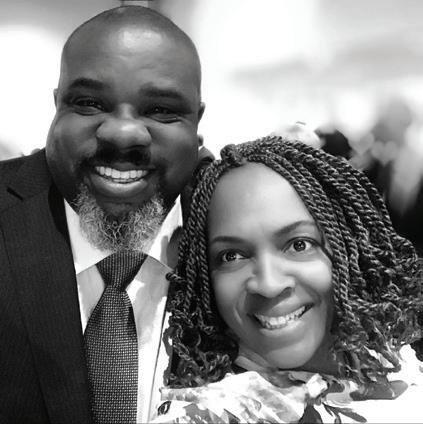
Rudy and Osharye Hagood have seven children and 12 grandchildren. Osharye is a women’s minister who is also certified as both a life coach and a health coach. Rudy is a pastor and professor with a background in social work. They love being married and love to bless both married and engaged couples.
@rudy.hagood
@rudy_hagood_
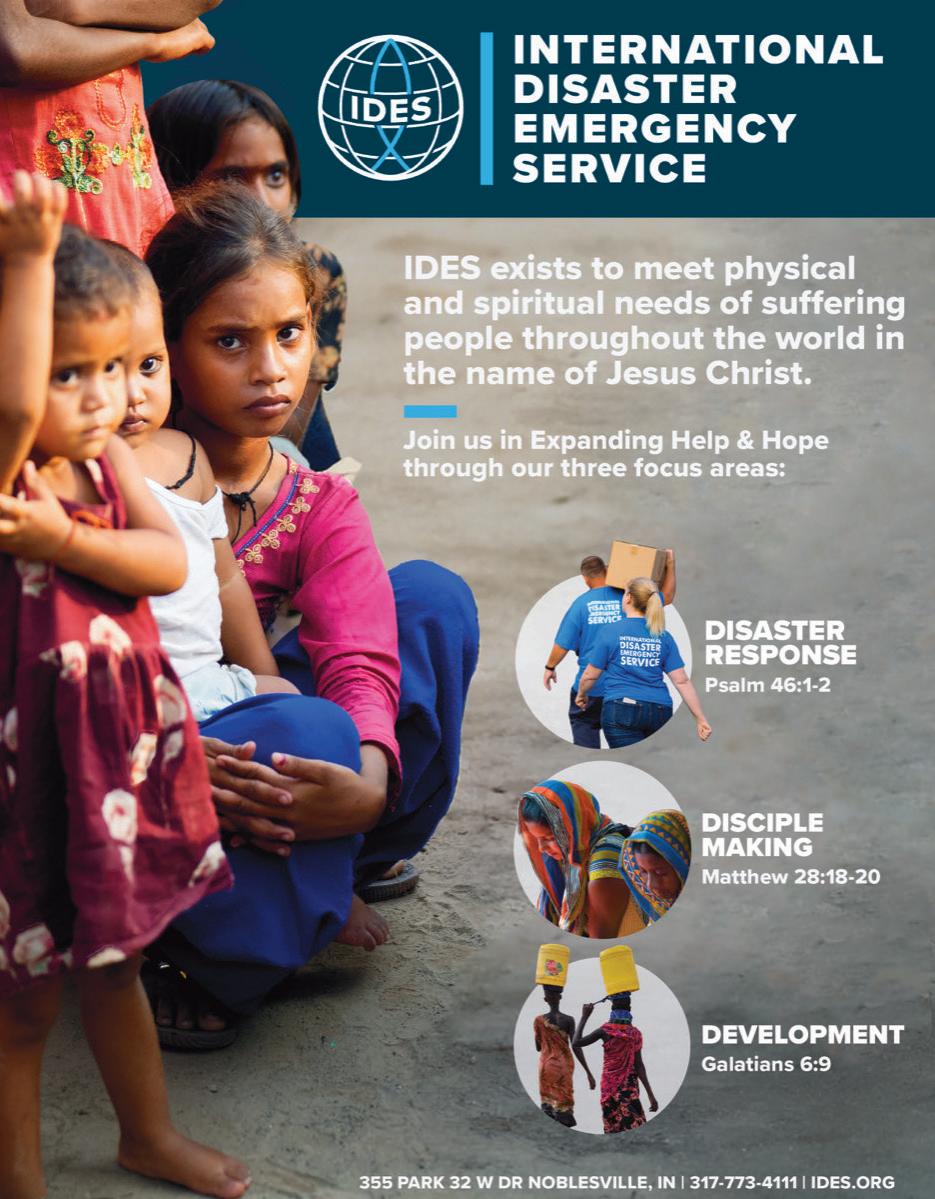
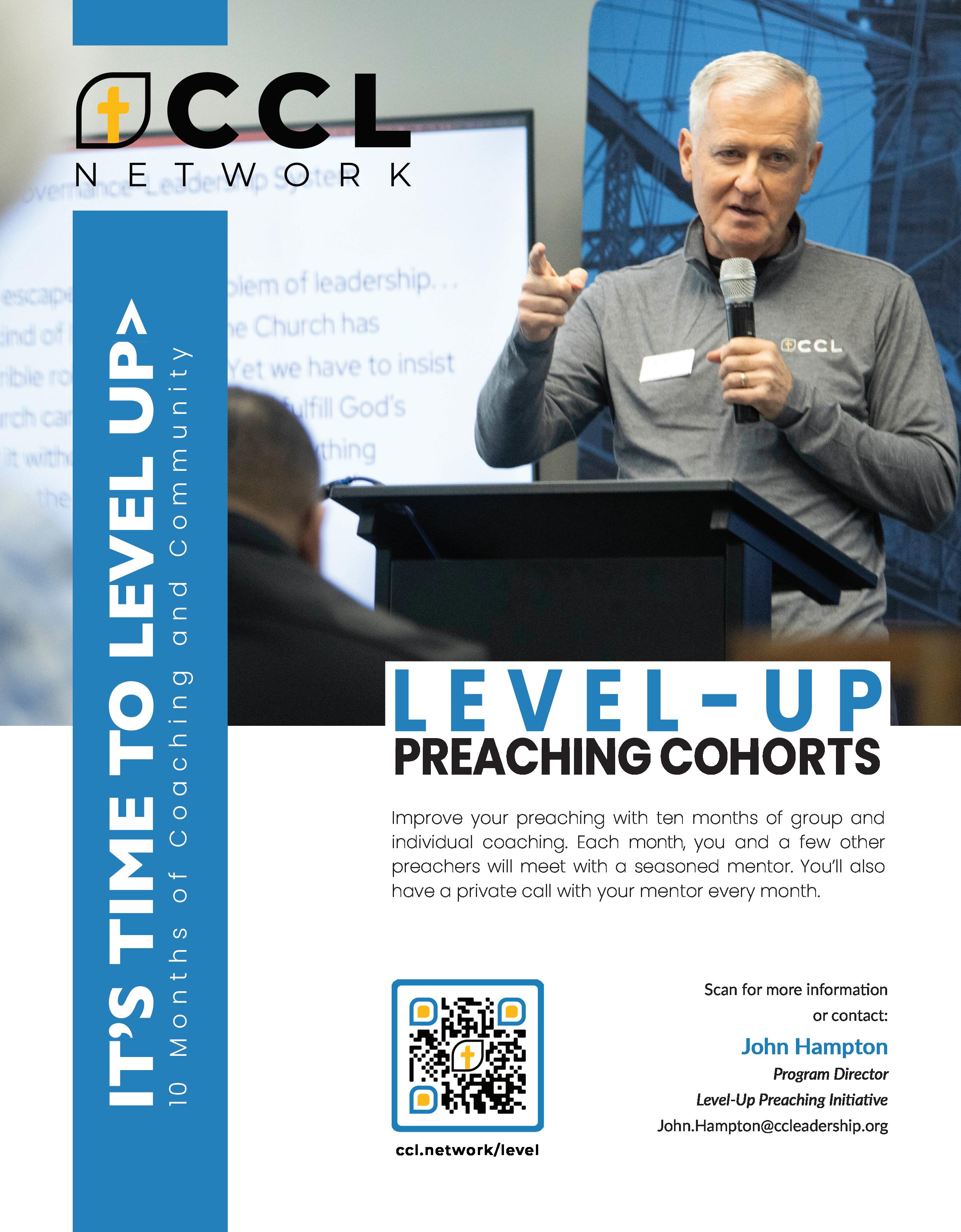

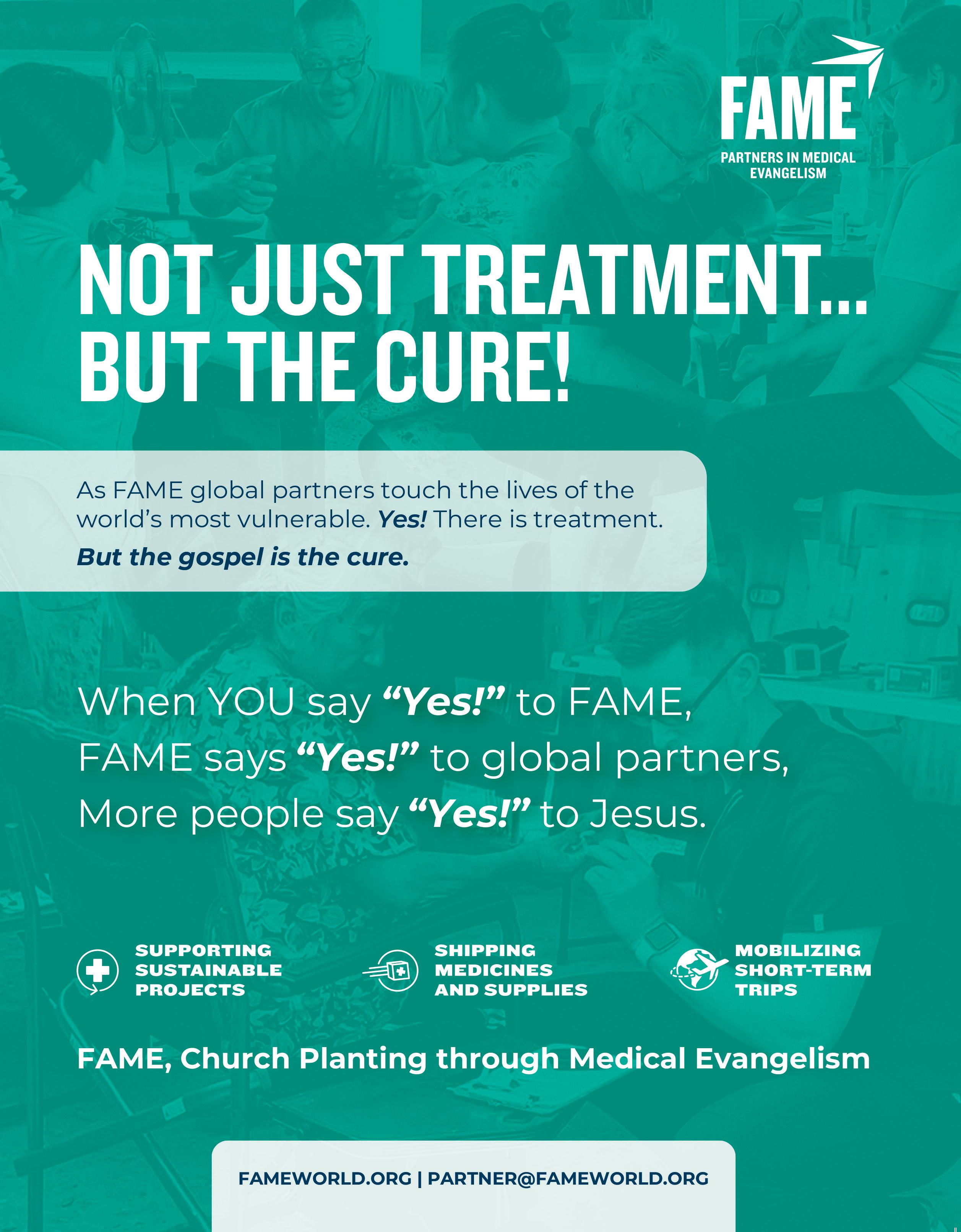
By Chris Philbeck
I love it when a plan comes together. Several years ago, I told my wife it would be great if when I retired from full-time ministry, our son (Andrew), who was serving in an associate role on my church staff at the time, would make the decision to lead his own church. I told her I would love just to be present and available for him in any way he might need. Fast-forward, and about a year after I retired, he accepted a call to lead a church not far from where we live and I feel, in many ways, like I’m living my best life. My son is my pastor, and I am his full-time (unpaid) consultant.
As Andrew prepared to begin his new ministry we talked about preaching. He had been on my preaching team as a part of his role as an associate, but had some questions about things like creating a preaching calendar, balance in choosing topics, etc. As we talked, I told him he should plan to preach for 30 minutes. I remember reading a quote from Kevin DeYoung that said, “A sermon should be long enough to adequately exegete and apply the main point of the passage, but short enough to leave mature Christians willing to listen a few minutes longer.” I liked the idea of 30 minutes because you could build in a “cushion” of five minutes and still be good, especially in a new church where first impressions matter.
How long do you think a sermon should be? Pew Research Center analyzed 50,000 sermons preached between April 7 and June 1, 2019, to determine the median sermon length in the U.S. The result was 37 minutes. According to a Lifeway Study (May 2020), most churchgoers prefer a sermon between 20-40 minutes. And people are twice as likely to say their pastor’s sermon is too long (27%) than it’s too short (13%). That reminds me of the old saying, “There’s no such thing as a bad short sermon.” In contrast to that, I’m also reminded of the old joke about a pastor who noticed a man get up and leave during the middle of his sermon, only to return just before the conclusion of the service. Afterwards he asked the man where he had gone. “I went to get a haircut,” the man said. The pastor asked, “Why didn’t you do that before the service?” “Because” the man said, “I didn’t need one then.”
All jokes aside (especially the bad ones), how long should a sermon last? Here are some guidelines to consider.
First, you’ve got to be true to the text. In other words, you’ve got to take the time for explanation, illustration, and application in a way that not only makes sense to the listener but also begins to stir their mind and heart.
Second, you’ve got to understand your audience. This was something I tried to communicate to my son as he began his new ministry. It takes some time to discover who the people in your congregation are,
what they are used to, what they like, and how they feel about listening to you preach. And you might have to create a plan to develop the kind of listening “culture” you’re trying to achieve. There can be exceptions to this. When I became the pastor at Mount Pleasant Christian Church in Greenwood, Indiana, I followed Reggie Epps. Reggie and I had been friends for many years, and I knew he was a great expository preacher. That knowledge helped me a lot in my early years at the church.
Third, you need to understand yourself. Let’s be honest. Some preachers are more gifted than others and our preaching, including the length of the sermon, should be in line with our giftedness. I’m sure we’ve all had the experience of listening to someone preach for 40 or 45 minutes, but it felt like 15. In contrast to that, we’ve listened to someone preach for 15 minutes and it felt like 45. While I am a strong believer in the role of the Holy Spirit bringing conviction through preaching, and the truth that we get better at something the longer we do it, our preaching needs to be in line with our ability to hold someone’s attention.
“Fourth, be concise. One of the things I’ve learned in writing this column for Christian Standard is the importance of being concise. I am limited to a certain number of words with each column. That simple truth forces me to be extra thoughtful about each sentence I type. Applying that same guideline to sermon writing can be a powerful thing.
Fifth, be honest. When I was a young preacher in my 20s, I traveled to Southern California to attend a preaching conference. One evening, in a standing room only worship center, I listened to a man preach for 50 minutes from Matthew 18. It was incredible as he unpacked one spiritual truth after another. One of the most significant things I remember about that experience, even after all these years, is thinking to myself, I’m not that guy. And I was okay with that. I knew that God had called me to be a preacher. In fact, that’s all I ever wanted to be. But I was not going to honor that call by trying to be someone other than myself. And over the years, God was faithful to help me grow into the unique preacher he had called me to become. Don’t waste time trying to be someone other than yourself. God wants you to preach with your voice.
I’m writing this column on the one-year anniversary of my retirement from full-time vocational ministry. My wife and I absolutely love having our son as our pastor. We can’t wait to go to church each Sunday to hear him preach. He preaches for 30-35 minutes and it’s just right. I love it when a plan comes together!
So at the end of the day, our preaching voice is shaped by our calling from God, our dependence on God, and the personal faith developed from both. I love these words from Alistair Begg: “If people leave worship saying, ‘What an amazing preacher!’ we have failed. Instead we must long for them to say, ‘What a great God, and what a privilege it is to meet him in his Word, as we have just done.” That’s what happens when you preach as yourself and forget yourself at the same time.
Don’t waste time trying to be someone other than yourself. God wants you to preach with your voice.
about the author

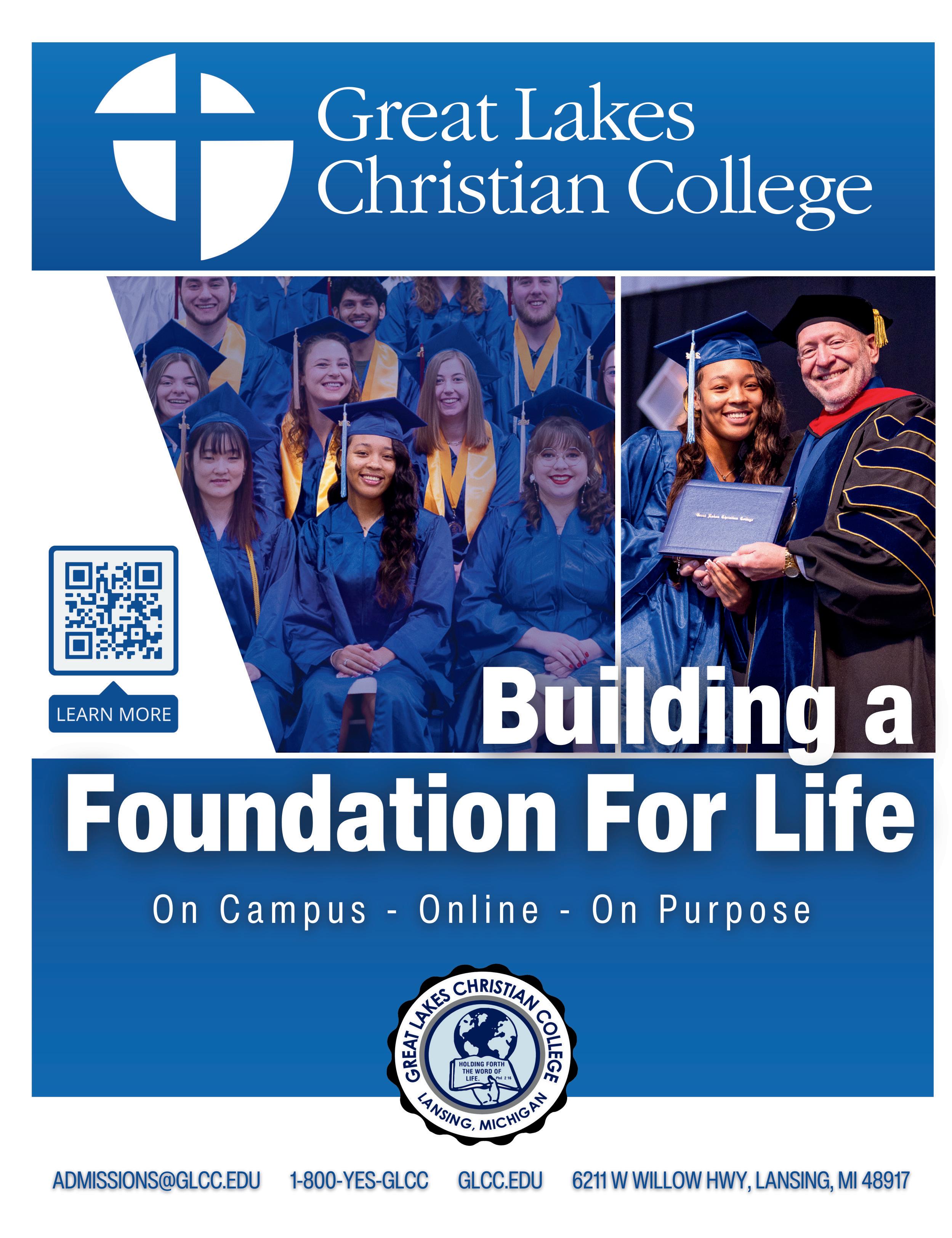

By Kent E. Fillinger
When Jesus called his first disciples he said, “Come, follow me, and I will send you out to fish for people” (Matthew 4:19, New International Version). Jesus said in Luke 19:10, “For the Son of Man came to seek and save those who are lost” (New Living Translation). Jesus also said, “Healthy people don’t need a doctor—sick people do. I have come to call not those who think they are righteous, but those who know they are sinners” (Mark 2:17).
If we’re serious about trying to reach lost sinners and fish for people like Jesus told us to, then it’s essential we understand the beliefs, behavior, and belonging of those we’re fishing for so we can use the right kind of “bait.”
The 2023-24 Pew Research Religious Landscape Study found that religiously unaffiliated adults—those who identify as atheists, agnostics, or as “nothing in particular” when asked about their religion—account for 29 percent of the U.S. population. So almost one out of every three people you meet is religiously unaffiliated or unchurched.
The size of the religiously unaffiliated population, which are sometimes called religious “nones,” has plateaued in the last five years after a long period of sustained growth. The numbers of both atheists and agnostics have doubled from 2013 to 2023 (from 2% to 4% and from 2% to 5%, respectively).
Like the racial and ethnic breakdown of all Americans, almost two-thirds (65%) of the religiously unaffiliated are white.
Younger Americans remain far less religious than older adults. Today, about four in 10 Americans ages 18-29 identify as religiously unaffiliated (38%), according to the 2024 PRRI Census of American Religion. Over one-third of Americans ages 30-49 identify as religiously unaffiliated (34%). The share of older Americans who are religiously unaffiliated is smaller: 22 percent of those ages 50-64 and 18 percent of those ages 65 or over.
The 2024 PRRI Census of American Religion also noted almost half (43 %) of Democrats overall identified as either religiously unaffiliated or some other religion compared to 16 percent of Republicans. But the percentage of Republicans who are Christian slightly declined by two percentage points from 2013 to 2023 (86% to 84%), with a seven-percentage-point decline in white Christian Republicans (75% to 68%).
Nearly one in five Americans (18%) left a religious tradition to become religiously unaffiliated. A July 2024 report from researcher Ryan Burge identified that there’s a crucial window between the ages of 15 to 25 when over half of those surveyed left religion behind. An additional 25 percent left religion between birth and 14 years old, so three-fourths of those who leave religion do so by the age of 25. These statistics serve as stark reminders of how important investing in children’s and student ministries in the church continues to be today.
The top three reasons cited for why these people left religion included: religious hypocrisy (42%), religion doesn’t make sense (35%), and religious bigotry (31%).
Of the 80 percent of U.S. adults that were raised Christian, 22 percent no longer identify as such based on the Religious Landscape Study. Nineteen of this 22 percent now identify as religiously unaffiliated. Only two percent now identify with other religions.
Of the six percent of U.S. adults that were raised in other religions, less than one percent now claim to be Christian. And of the 13 percent who were raised religiously unaffiliated, only three percent are now Christian.
There are six former Christians for every convert to Christianity in the U.S. according to the Religious Landscape Study. Protestants also lose more people than they gain through switching, by a ratio of 1.8 to one. In stark contrast, the religiously unaffiliated gain nearly six people for every person they lose through religious switching.
Among Restoration Movement churches, 42 percent of U.S. adults who were raised in a Christian church still identify with our churches, while 31 percent now identify with a different Protestant denomination, and 23 percent now are religiously unaffiliated.
Only three percent of Americans who grew up without a religious identity join a religion later and less than one-in-10 religiously unaffiliated (9%) said the statement, “I am looking for a religion that would be right for me” currently describes them “very” or “somewhat well.”
According to the Religious Landscape Study, when it comes to sharing their views about religion with people
Statement of Ownership, Management, and Circulation (Required by 39 USC 3685)
1. Publication Title: Christian Standard
2. Publication Number: 958-520
3. Filing Date: August 25, 2021.
4. Issue Frequency: Every Other Month
5. Number of Issues Published Annually: 6
6. Annual Subscription Price: $29.99, Free Online
7. Complete Mailing Address of Known Office of Publication (Not printer): 16965 Pine Lane, Suite 202, Parker, CO 80134
8. Complete Mailing Address of Headquarters or General Business Office of Publisher (Not printer): 16965 Pine Lane, Suite 202, Parker, CO 80134
9. Full Names and Complete Mailing Addresses of Publisher, Editor, and Managing Editor: Publisher, Jerry Harris, 16965 Pine Lane, Suite 202, Parker, CO 80134; Editor, Shawn McMullen, 16965 Pine Lane, Suite 202, Parker, CO 80134; Managing Editor, Rick Cherok, 16965 Pine Lane, Suite 202, Parker, CO 80134.
10. Owner (if the publication is owned by a corporation, give the name and address of the corporation immediately followed by the names and addresses of all stockholders owning or holding 1 percent or more of the total amount of stock. If not owned by a corporation, give the names and addresses of the individual owners. If owned by a partnership or other unincorporated firm, give its name and address as well as those of each individual owner. If the publication is published by a nonprofit organization, give its name and address): Restoration Movement Media dba Christian Standard Media, 16965 Pine Lane, Suite 202, Parker, CO 80134.
11. Known bondholders, mortgagees, and other security holders owning or holding 1 percent or more of the total amount of bonds, mortgages, or other securities (if there are none, so state): The Solomon Foundation, Renee Little, Senior Vice President, 16965 Pine Lane, Suite 202, Parker, CO 80134.
12. Tax Status (for completion by nonprofit organizations authorized to mail at nonprofit rates) Has Not Changed During Preceding 12 Months
13. Publication Title: Christian Standard
14. Issue Date for Circulation Data Below: November/December 2022
15. Extent and Nature of Circulation:
a. Total Number of Copies (Net press run)
Average Number Copies Each Issue During Preceding 12 Months Copies of Single Issue Published Nearest to Filing Date
b. Paid Circulation (By Mail and Outside the Mail)
1. Mailed Outside-County Paid Subscriptions Stated on PS Form 3541
2. Mailed In-County Paid Subscriptions Stated on PS Form 3541
3. Paid Distribution Outside the Mails Including Sales Through Dealers and Carriers, Street Vendors, Counter Sales, and Other Paid Distribution Outside USPS®
4. Paid Distribution by Other Classes of Mail Through the USPS
c. Total Paid Distribution (Sum of 15b. (1),(2),(3), and (4))
d. Free or Nominal Rate Distribution (By Mail and Outside the Mail)
1. Free or Nominal Rate Outside-County Copies Included on PS Form 3541
2. Free or Nominal Rate In-County Copies Included on PS Form 3541
3. Free or Nominal Rate Copies Mailed at Other Classes Through the USPS
4. Free or Nominal Rate Distribution Outside the Mail
e. Total Free or Nominal Rate Distribution (Sum of 15d (1), (2), (3), and (4)
f. Total Distribution (Sum of 15c and 15e)
g. Copies Not Distributed
h. Total (Sum of 15f and g)
i. Percent Paid (15c divided by 15f times 100)
16. Electronic Copy Circulation:
a. Paid Electronic Copies
b. Total Paid Print Copies (Line 15c) + Paid Electronic Copies (Line 16a)
c. Total Print Distribution (Line 15f) + Paid Electronic Copies (Line 16a) .
d. Percent Paid (Both Print and Electronic Copies) (16b divided by 16c x 100)
Publisher certifies that 50% of all distributed copies (electronic and print) are paid above a nominal price.
17. Publication of Statement of Ownership will be printed in the January/February 2024 issue of this publication.
18. I certify that all information furnished on this form is true and complete. I understand that anyone who furnishes false or misleading information on this form or who omits material or information requested on the form may be subject to criminal sanctions (including fines and imprisonment) and/or civil sanctions (including civil penalties). (Signature and Title.)
Renee Little, owner 8/26/2024
“
from other religious backgrounds, nine percent of U.S. adults say they do this at least once a week compared to 17 percent of Evangelical Protestants. An additional nine percent share their views on religion once or twice a month compared to 15 percent of Evangelical Protestants. Sixteen percent say they share their faith several times a year compared to 21 percent of Evangelical Protestants. But almost half (46%) of Evangelical Protestants report “seldom” or “never” sharing their views about religion with people from other religious backgrounds.
Of the 80 percent of U.S. adults that were raised Christian, 22 percent no longer identify as such based on the Religious Landscape Study.
If you’re a church leader, you’re responsible for modeling evangelism for your congregation. Nathan Lorick said, “A pastor must lead by example if his people are to follow. If a pastor does not have a heart and burden for the lost, neither will the people he leads.”
Chuck Lawless encourages church leaders and Christians to ask the following tough questions to evaluate their evangelistic fervor:
• What keeps me from doing evangelism today? Honest evaluation is a good start toward improvement.
about the author

/3strandsconsulting
3strandsconsulting.com
• What are the names of the non-believers for whom I am praying regularly? Your prayer life is a starting place to determine your evangelistic passion.
• What intentional connections am I making with non-believers? It’s so easy for church leaders to get cocooned in the church world that we must intentionally choose to connect with unbelievers.
• How many genuine friendships with non-believers do I have? We won’t reach non-believers if we don’t really know any of them.
• When was the last time I personally shared the gospel with someone?
Lawless also added, “It’s hard to do evangelism when nobody’s really talking to anybody. As believers, we— beginning with me, for I’m guilty, too—must take the initiative to engage people, draw their interest and attention to the gospel, and speak the good news clearly to them in the few minutes they might grant us. That means we create opportunities by initiating conversations, listening closely to others, and taking those conversations clearly and concisely to the gospel.”
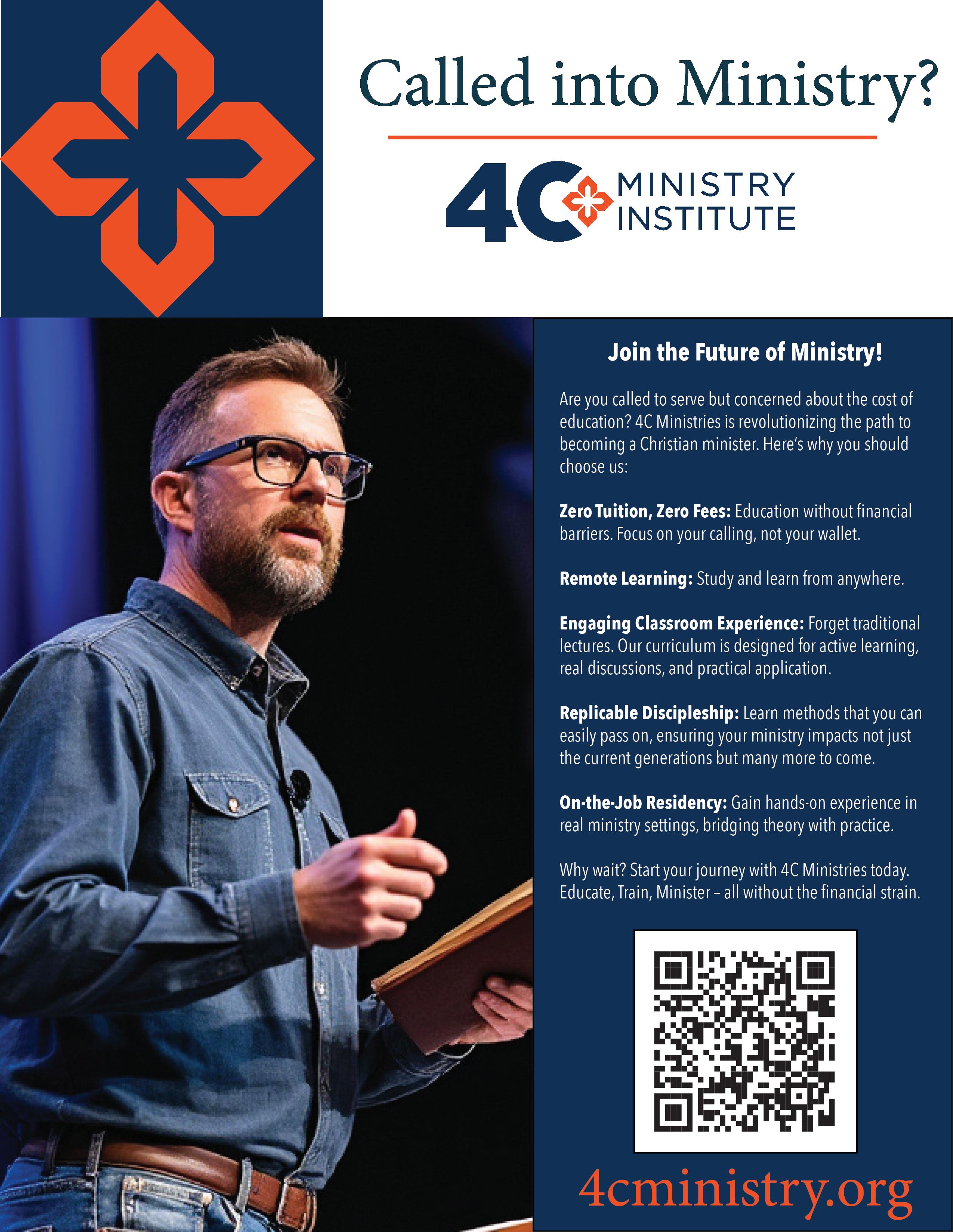

Two years ago I wrote an article for another magazine identifying 10 of my greatest concerns about trends within Christian churches. Some were matters of biblical teaching, absolutes; while others were matters of personal but practical opinion, having to do with effectiveness. In retirement, I’ve preached in at least 200 different churches. In one such church I preached the gospel as effectively as I could. Then, as I always do, I presented an invitation for all who were ready to give their lives to Christ, to come forward publicly to confess their faith in him and prepare for baptism.
As we sang a song of invitation, a middleaged man made his way to the aisle and proceeded to make his way to the front. It became obvious that something very special was taking place as there was a stirring in the congregation. Some were in tears while others were lifting hands in praise, and yet others were hugging each other in an obvious display of excitement. As it turns out, this was someone who attended every Sunday, and many had been praying for his salvation for years. After receiving his confession of faith, the local pastor baptized him into Christ amid great celebration. When I later had the opportunity to ask him, “Why now? Why today?” He simply responded, “Because no one ever asked me before! ”
PROCLAMATION, PERSUASION, RESPONSE
I can’t help but wonder how many lost people might give a similar response. You see, salvation or regeneration is a process in which many play a part. God the Father planned the process: “God so loved the world” (John 3:16). God the Son enabled the process: “He laid down His life for us”
(1 John 3:1). God the Holy Spirit convicts. John 16:8 tell us that he “will convict the world concerning sin and righteousness and judgment” (New American Standard Bible 1995). But you and I have a part in that process as well. We are to proclaim the gospel. Then we are to persuade people to give their lives to Christ. In Acts 26:28, King Agrippa said to the apostle Paul, “in a short time you will persuade me to become a Christian.” Though many believe he said it sarcastically, it is certainly an acknowledgment of the role of persuasion.
We have no greater example of this than with the apostle Peter on the day of Pentecost. Read Acts 2:14-36 where Peter clearly proclaimed the gospel of Jesus’ death, burial, and resurrection. That proclamation clearly led to conviction, which in turn led to the response in verse 37: “Brothers, what shall we do?” But Peter didn’t leave it at that. “With many other words he solemnly testified and kept on exhorting them saying, ‘Be saved from this perverse generation! ’”
Then there was the response. According to verse 38, their faith in Jesus Christ as the Son of God and Savior of mankind led them to repent of their sins and to be baptized for the remission of their sins and the gift of the Holy Spirit. And 3,000 of them did so. Just days later, as Peter was again preaching, “Many of those who had heard the message believed and 5,000 more were added to the church.”
No, I don’t know all the logistics, although there were many pools available in Jerusalem, but I do know that when the gospel is proclaimed, and the Holy Spirit brings conviction, and people are challenged to respond, they respond. Yes, there must be proclamation for “Faith comes by hearing, and hearing by the Word of Christ”

(Romans 10:17). There must also be persuasion, even if only giving people the opportunity to respond. James wrote in James 4:2, “You do not have because you do not ask.” While the context requires an expanded application, the principle is valid. Only after seeing the people respond does the further process that we know as discipling take place. Acts 2:42 says, “They were continually devoting themselves to the apostles’ teaching and to fellowship, to the breaking of bread and to prayer.” And evangelizing became an ongoing part of that process according to Acts 2:47: “And the Lord was adding to their number day by day those who were being saved.”
This past spring, Jan and I were privileged to participate in a wonderful cruise put together by the Bill Gaither ministries. Yes, the nightly concerts put on by some of the best instrumental and vocal artists in Christian music today were outstanding. However, the most meaningful times for many of us were those times in which we joined our voices in singing hymns, gospel songs, and praise choruses the church has been singing, in many cases, for decades. One afternoon we sang the songs that have been considered invitational or decision songs. The leader asked us to stand if and when we sang the song that was being sung as we publicly went forward to confess Jesus as Savior and Lord.
For me it was “Softly and Tenderly Jesus Is Calling.” Though that was many, many years ago, I experienced anew my confession of faith: “I believe that Jesus is the Christ, the Son of the living God, and I accept him as my Lord and my Savior.” I could almost feel the
cool waters of the James River just outside of Springfield, Missouri, as I was immersed in the name of the Father, the Son, and the Holy Spirit. I was thrilled again to feel what it means to become a new creation through the shed blood of Jesus Christ and the regenerating work of the Holy Spirit. As we sang, I broke down and wept—no, I sobbed—as I remembered that experience and how it had changed my life for all of time and eternity. You see, there is an experiential element to being born again. It’s not just an intellectual acknowledgment of doctrinal truth nor just an experience of the head, but perhaps even more so, of the heart. By the way, as you might have guessed, more people stood as we sang “Just as I am” than for any other such song. Perhaps this might be the time to go back and reread the words of that great hymn, whether from a hymnbook (remember them?) or by pulling those words up on your computer or device.
Let me be quick to acknowledge that the public invitation as we think of it today was not a regular practice of the church until the 1800s, the age of the great revivalists. However, it fulfills all the basic elements of the process of true conversion: proclamation, persuasion, belief or trust, genuine repentance, and public acknowledgement in confession and baptism. Until the church comes up with a better practice that is consistent with biblical teaching, the biblical mandate, and works from a practical vantage point, I want to urge congregations that have abandoned the practice to reconsider. Because a practice is new doesn’t mean it is better and because the church down the road does it doesn’t make it preferable. Personally, I believe in “same hour of the night baptism” (Acts 8:29-39). But in the many instances where the convert is baptized in a setting outside a public gathering, I always encourage them to respond to an invitation

offered in a public service so as to affirm and strengthen their faith as well as to identify with other believers.
Of course, the public invitation can serve a number of purposes. People can come for prayer, to identify with the local church, for rededication, and to dedicate their lives to Christian service or ministry. There was a time when the latter invitation was a staple at church camp, at youth events, and from time to time in the regular services of the church. Could it be that the abandonment of that practice is related to the lack of men and women going into full-time Christian ministry today?
Perhaps the most unusual response to a public invitation had to do with a preacher friend of mine who had asked a young lady in the congregation to marry him. At first, she was reluctant to agree. But on the following Sunday she came down the aisle to say “yes,” much to the delight of the congregation. This year they celebrated their fiftythird anniversary. Remember, you have not because you ask not.
While our main theme in this article is the public, evangelistic invitation and its abandonment by many churches, let me at least mention another related and, I believe, more important concern: a lack of emphasis on personal evangelism in the church today. I honestly wonder if most Christians have any idea of where to start in leading someone to Christ. I’m so thankful that my college experience was under men like Don DeWelt who taught us the use of “Ten Timely Truths,” an adaptation of what many call “The Roman Road.” I was further blessed in my weekend ministry by hosting some of the best evangelists in the country, not just in their preaching but in their practice of personal evangelism. That approach con-
tinued during my many years in full-time located ministry.
Sharing the gospel with someone who doesn’t know Christ, leading them to faith in him, and persuading them to yield their lives to Christ outwardly as well as inwardly, is an experience like no other. And lest anyone think that is something reserved for “the clergy” to do, let me make it clear that in the local church I served, Tuesday nights and Wednesday mornings were reserved and required for evangelistic calling by staff members, elders, and other leaders in our congregation. And great was the harvest as a result. Personal evangelism was also regularly taught from the pulpit. I have far more stories than space allows to tell of the resultant, dramatic conversions. For instance, the oldest convert I can remember was an old German lady named Josephine who my wife, Jan, led to Christ on a Wednesday morning. Josephine was 105 years old. There is nothing to compare with presenting the gospel to someone who is lost, seeing them come to saving faith, asking them to give their lives to Christ, often with tears running down their cheeks and yours, and hearing them say “Yes! Thanks for asking!”
And having asked, don’t be reluctant to press the issue. Time and time again I’ve had people tell me, “If you had just sung one more verse, I would have given my life to Christ!” Fortunately, when I’ve been told that, the person was so close to conversion that I’ve had the privilege of going on to lead them to Christ. But your invitation, the invitation, may well determine a person’s eternal destiny.
“The Spirit and the bride say, ‘Come!’ And let the one who hears say, ’Come!’ Let the one who is thirsty come; and let the one who wishes take the free gift of the water of life” (Revelation 22:17, New International Version).
John Caldwell served for 36 years as senior minister of Kingsway Christian Church in Avon, Indiana. In retirement he continues a writing and speaking ministry.
Don and Sue Wilson have accomplished more in church growth than any other leaders in the Restoration Movement. That’s a big boast and it’s not his, but mine as I think about the story of Christ’s Church of the Valley in the Phoenix area. What started as a church meeting in Don and Sue’s home grew to the largest, fastest growing, most evangelistic in terms of baptisms, and the most outreachoriented church in our movement and continues to be a flagship church for all evangelical churches.
A few months ago, Allison and I had the privilege of spending some quality time with Don and Sue, good friends and mentors for us. While Allison and Sue were talking together, my conversation with Don focused on the distinctives of each of our movement’s conferences and the need for greater cooperation between them. I pointed out that in Matthew 28, Jesus lays out his prescription for the making of a disciple using three participles in the Greek; going, baptizing, and teaching. I reflected on how ICOM emphasizes the going, particularly outside the United States; how Spire emphasizes baptizing, networking, and best practices for growth—particularly in the American church—catalyzing a movement of growing churches; and how Renew emphasizes teaching through effective discipleship practices, publishing, and church planting. After I shared my thoughts, Don responded that I had missed something in the Great Commission. When I challenged him, he said, “to obey everything I have commanded you.” What followed was a discussion on the disconnect in the American church between the awareness of Jesus’ teaching and commands, and our willingness to walk them out in daily obedience. I asked Don to write about his thoughts and share them with Christian Standard
Jerry Harris


By Don Wilson

Every pastor feels the constant pressure to be successful in the eyes of the congregation, among their peers, and even in the eyes of the unchurched community. This is usually measured by increasing the three B’s: baptisms, budget, and bodies in the seats.
In my opinion, we must always ask ourselves how Jesus defined success. As he ascended into heaven, he left his disciples with these instructions. “All authority in heaven and on earth has been given to me. Therefore go and make disciples of all nations, baptizing them in the name of the Father and of the Son and of the Holy Spirit, and teaching them to obey everything I have commanded you. And surely I am with you always, to the very end of the age” (Matthew 28:18-20, New International Version).
The mission of Jesus was to go and make disciples. The great commission of making disciples is through baptism, teaching, and obedience. It appears to me that something is missing in the American church today when it comes to making disciples. There is often little difference in the lifestyles of those who attend church and claim to be followers of Jesus and those who don’t. I don’t see real transformation taking place in the lives of many who say they want to follow Christ.
Could it be that we have departed from the pattern given to us by Jesus? Today’s model for the church is to pay the pastor to preach weekly to us from the Bible. Of course, he and/or an executive pastor hires and develops a staff to provide great programs for all ages of the congregation. The pastor also encourages the members to go and invite their friends and neighbors to join them at the weekend experience and enjoy the same programs. It appears to me that by following this model, the church has developed a culture of consumers and spectators instead of contributors and disciples.

WHEN WAS THE LAST TIME YOU HEARD A MESSAGE CHALLENGING OUR RESPONSIBILITY TO OBEY THE COMMANDS OF JESUS?

I believe the missing piece of the Great Commission is obedience. When was the last time you heard a message challenging our responsibility to obey the commands of Jesus? Jesus made obedience critical in teaching his disciples.
“Not everyone who says to me, ‘Lord, Lord’, will enter the kingdom of heaven but only the one who does (obeys) the will of my Father who is in heaven” (Matthew 7:21).
Confession of our need for the salvation that Jesus offers is not enough to get to heaven. Faith in him alone must be followed by application of spiritual truth to our daily living. At the end of Jesus’ great teaching in Matthew 5-7, he said these words.
Therefore everyone who hears these words of mine and puts them into practice is like a wise man who built his house on a rock. The rain came down, the streams rose, and the winds blew and beat against that house: yet it did not fall because it had its foundation on the rock. But everyone who hears these words of mine and does not put them into practice is like a foolish man who built his house on sand. The rain came down, the streams rose, and the winds blew and beat against that house, and it fell with a great crash (Matthew 7:24-27).
Your Christian life cannot survive the storms of life no matter how many sermons and Bible studies you listen to unless you put those biblical principles into action (obey).
• In Matthew 21:28-32 Jesus told a parable about two sons. Obedience is what he wanted from both sons.
• In John 8:31 Jesus challenged his disciples to hold on to his teaching.
• In John 14:15 Jesus told his disciples that if they loved him, they should keep his commands. Faith cannot be separated from obedience
The book of James reminds us that we cannot separate faith from obedience. James 1:22 tells us, “Do not merely listen to the word, and so deceive yourselves. Do what it says.” James 2:17 says, “In the same way, faith by itself, if it is not accompanied by action, is dead.” Jesus modeled obedience for us when he went to the cross. It was not what he wanted to do, but he was being obedient to what his Father asked him to do.

I believe obedience is the missing key to the Great Commission that unlocks the blessings of God and brings about transformation. Without obedience we will never move our people who come to church from consumers to contributors. They will go to church consistently, but will find it difficult to be the church where they work and where they live.
I want to give you three observations from working with pastors and visiting churches over the past few years. I am so thankful for the increase in baptisms in many of our churches. However, I rarely hear mention of repentance. Baptism without repentance rarely brings about transformation.
I spent several days last year with international disciple makers. They talked about the difference between teaching and training. Teaching, they said, inspires and informs but rarely transforms. Training, they said, gives you a skill which you must put into action. Teaching without training rarely brings about transformation.
Preaching usually contains one or more of these three challenges to the congregation: what you should know, what you should feel, and what you should do. It seems to me that in the sermons I hear, there is a much higher priority placed on knowing or feeling than on doing.
Preaching without a challenge to do something (application) rarely brings transformation.
As I was talking with a man who has observed disciple-making movements all over the world, I asked him what the key was to their fulfillment of the Great Commission. He said we train them to do three things:
• Read the word of God consistently.
• Pray to God differently. Their prayers include 15-30 minutes a day listening to God’s voice and what he impresses them to do.
• Obey God completely. They put into action what they believe God has told them to do.
So as those who have been charged with carrying out the Great Commission to go to all the world making disciples, let’s remember that baptizing and teaching is not complete if obedience is not also taught and modeled by those who claim to follow Jesus.
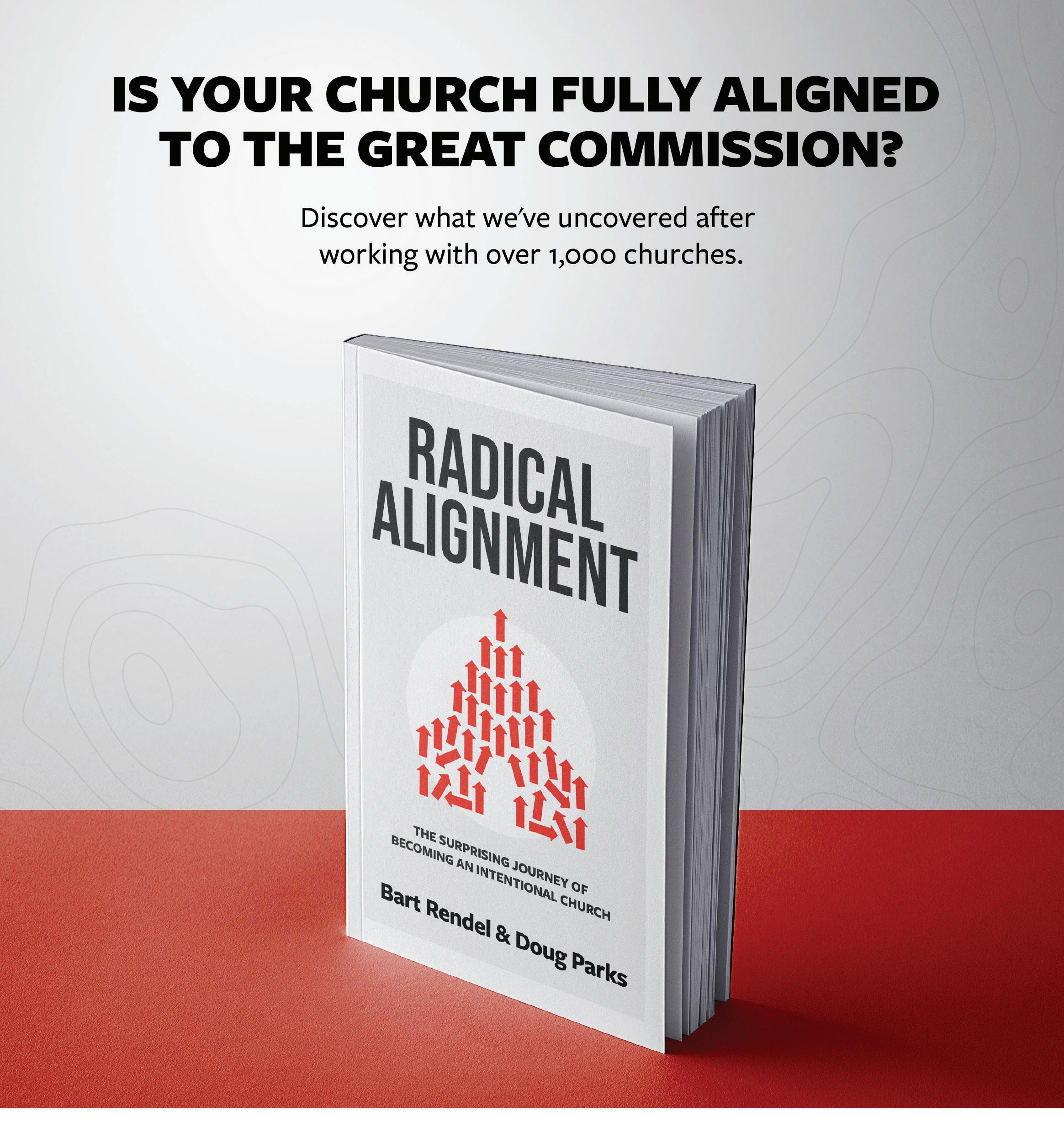
By Bart Rendel
J
esus gave us wonderfully clear directives as church leaders and followers. In Luke 15 he gave us three powerful stories that emphasized the pre-eminent importance of pursuing the lost—“the One.” And in Matthew 28, he gave us the personal and corporate mission to go into the world and make more and better disciples, the Great Commission.
The Great Commission, however, has suffered a crisis in modern times. Somewhere along the way, "go and make disciples of all nations" shifted from being a deeply personal calling for every Christ-follower to merely an organizational mission statement hanging on church walls.
One truth has emerged with crystal clarity after working with over 1,000 churches across the country: radical alignment to the Great Commission—both corporately and personally—is the most powerful and transformative shift in front of us today.
While some churches are experiencing growth in our post-pandemic spiritual revival, it is my belief that until this shift occurs, the wins will be short-lived. Churches will continue to struggle with inward focus, declining impact, and the spiritual consumerism that plagues so many congregations.
One of the most troubling discoveries from working with churches nationwide is how evangelism and discipleship have become disconnected, and in some cases, seen as opposing forces. I've witnessed leaders actually debate whether they're going to be "a discipleship church" or an "evangelistic church," as if these represent two different paths rather than two sides of the same calling. In one case, I know of a church that prayed about the decision for 30 days!
This separation misses a fundamental truth: disciplemaking (a.k.a., the Great Commission) begins with evangelism. You cannot make a new disciple without first reaching someone who doesn't know Jesus. The Great Commission isn't about choosing between evangelism and discipleship, it's about understanding that they're inseparable.
The undeniable purpose of the church is to accomplish the Great Commission—to radically align mankind back to God through Christ. Early followers of Christ understood this from the beginning and took the directive seriously.
Jesus made his purpose clear in his prayer at the Last Supper, emphasizing more than once "that the world may believe." In his final earthly appearance, he gave this powerful prediction and directive: "You will receive power when the Holy Spirit comes upon you. And you will be my witnesses, telling people about me everywhere—in Jerusalem, throughout Judea, in Samaria, and to the ends of the earth" (Acts 1:8, New Living Translation).
Remember, his followers expected him to restore Israel and establish an earthly kingdom. Instead, he turned the tables and sent them out to evangelize the world. Expectations don't matter; his purpose does.
This calling transformed the early church. Philip found himself ministering in Samaria—not a great distance physically, but certainly socially. He would never have gone there unless he knew it was Jesus' command. Paul, more traveled and sophisticated, raised support, hiked, and sailed to spread the gospel throughout the Mediterranean.
Paul's radical alignment is captured perfectly in Acts 20:24: "But my life is worth nothing to me unless I use it for finishing the work assigned me by the Lord
Jesus—the work of telling others the Good News about the wonderful grace of God."
The Great Commission isn't a random utterance of Jesus. It's the marching orders for the church that still stand today, including you and your church.
Most churches today operate under a flawed assumption that buildings, services, and programs advance the gospel. This institutional thinking has led us to believe that if we create the right systems, hire the right staff, and launch the right ministries, the Great Commission will somehow fulfill itself.
Here's the uncomfortable truth: people accomplish the Great Commission; not strategies, programs, or even organizations.
This institutionalization manifests in three destructive ways:
Transactions over transformation. Success gets measured by attendance goals rather than life change. The question "How many?" overshadows "How committed?"
Programs over process. Ministries and events become the reason we have a church calendar and budget. Having the event becomes the win, regardless of whether anyone's life was actually transformed or people got connected to Jesus and one another.
Responsibilities over relationships. Staff and volunteers focus on fulfilling job descriptions and duties rather than asking, "How's it going with your One?" Personal relationships with lost people become someone else's responsibility.
When we institutionalize the Great Commission, we not only convince ourselves that buildings, services, and programs accomplish the mission, we also come to believe pastors and staff fulfill the Great Commission instead of a congregation equipped to live it out personally.
Don't miss this: The Great Commission must first become a personal mission statement of every Christ follower—including you and your leadership team (and your elders)—before it can ever become an effective organizational mission.

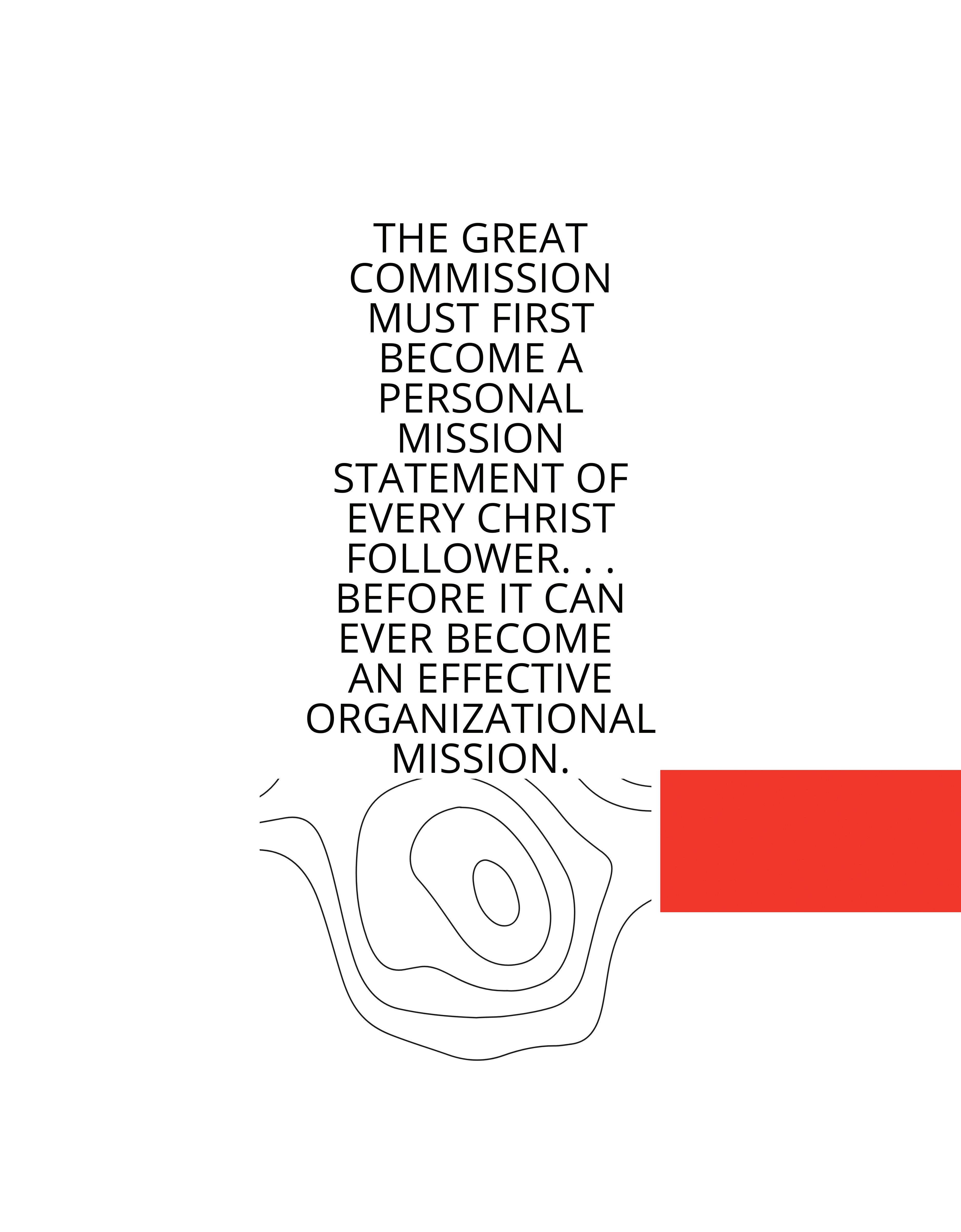
What surprises most church leaders is how deeply personal this alignment must be. It often begins in the transformation of their own hearts, requiring them to fundamentally alter their lifestyles, priorities, and relationships.
This requires honest assessment using what we call the "Four Commodities of Life and Leadership"—evaluating how your time, money, energy, and attention are currently allocated toward reaching the lost.
Consider these penetrating questions:
• How much of your calendar and budget is Oneaware and activated? When you make plans for the week or an upcoming vacation, is reaching the One top of mind?
• When did you last have a spiritual conversation with someone who doesn't attend church? Do you intentionally work to develop these relationships? (Studies show most Christians have little to no non-Christian friends within seven years of deciding to follow Christ).
• What share of your mind and God-given talents are committed to reaching the One? If you're good at golf, does your “One” influence who you include in your foursome or when you schedule your tee-time?
I'm asking these questions to you first, leader! Then you should be asking them of your church family, and eventually of your church’s resource commitments as well.
If there's misalignment to the Great Commission within you—if what you desire doesn't match what you believe and how you think, or how you think doesn't align with how you behave and act—that internal conflict will undermine every attempt at leading and creating a church aligned to the Great Commission.
When enough individuals within a church begin living the Great Commission as their personal mission, something remarkable happens. Instead of being consumers expecting professional staff to fulfill the mission on their behalf, the congregation becomes a community of missionaries actively engaged in reaching their community.
The ultimate goal isn't sporadic evangelistic efforts or seasonal outreach campaigns. It's creating a sustainable culture where reaching the lost becomes as natural as breathing for every church member. This happens when the Great Commission moves from being something the church does to being something the church is (its animating purpose).
Churches that achieve this transformation discover that evangelism becomes less about events and programs. Their greatest evangelistic tool isn't their Sunday service (though it remains important), but the collective witness of hundreds of believers living One-aware, activated lives throughout the community.
When believers focus on reaching their One (a reference to the lost sheep from Luke 15), several things happen simultaneously:
• They die to self by prioritizing someone else's spiritual need.
• They develop deeper dependence on prayer and Scripture.
• They gain clarity about their own faith as they learn to articulate it.
• They experience the joy of partnering with God in his redemptive work.
• They develop spiritual maturity through spiritual multiplication.
One of the fastest ways to develop spiritual maturity in your church is to get members focused on praying for and reaching their personal "One(s)" by name—that person(s) in their relational network who needs Christ. It truly is one of God's great tools to grow your church in breadth and depth.
You face a fundamental choice. Will the Great Commission remain merely an organizational mission statement, or will it become the personal mission that drives everything you do, along with every decision you and your leadership team make?
The path forward requires courage to examine your own life honestly, courage to model what it looks like to live a One-aware and activated life, and courage to lead your congregation through the sometimes-uncomfortable process of radical alignment to the Great Commission.
Radical alignment isn't our idea; it's been God's plan all along. From the beginning, Scripture calls us to align with his purposes. The question isn't whether your church needs to be more evangelistic. The question is whether you're ready to make the Great Commission your personal mission, and challenge everyone on your team and in your church to do the same.
Bart Rendel is co-founder and CSO of Intentional Churches, Las Vegas, Nevada.

At 17 years old, I finally accepted the invitation from a friend who had invited me every Wednesday night to youth group. When I relented and showed up to the loud coffee shop style space in the giant building, what did I find? I found hope. I found forgiveness. I found joy. I found love. I found Jesus.
That night, I heard the gospel message, and my life— and my eternity—were forever changed. In that moment, I went all in. I was baptized. I started reading God’s Word. I began trusting him in both the big and small areas of my life. Most importantly, I sought out community. Community that extended far wider than just in the church building.
Now, 20 years later, I serve as the Campus Pastor at that same church. And I get to witness something incredible: a fresh wave of revival, a holy enthusiasm rising among a new generation of young people who are passionately pursuing Jesus.
Week after week, I have a front-row seat to life change. I see students and young adults confessing their faith, surrendering to Christ, stepping into the waters of baptism, and responding in obedience to God’s Word. They are the first to raise hands in worship, circle up and pray at the steps over one another. They arrive to service early and are usually the last to leave.
There’s no doubt in my mind; God is stirring something deep in the hearts of 14–25-year-olds. At our church, we call them “ThisGen,” short for This Generation. And we believe wholeheartedly that they are not the church of the future. they are the church of now.
We are empowering This Generation of believers to believe what 1 Timothy 4:12 says: “Don’t let anyone think less of you because you are young. Be an example to all believers in what you say, in the way you live, in your love, your faith, and your purity.” (New Living Translation).
Across our high school gatherings, Discovery Bible Study groups, and Tuesday night young adult services, something is happening. Students aren’t just sitting in chairs; they’re leaning in, taking notes, asking hard questions, and stepping into leadership. They’re sharing their testimonies, running tech, managing social media, leading worship, delivering Communion meditations, and baptizing their peers.
What’s more, they’re bringing their friends with them.
You might be tempted to believe the narrative that Gen Z or Gen Alpha is walking away from the church. But I’m not seeing that. Not here in Quincy, Illinois. Not from where I’m standing.
I’m seeing young people run to the church. I’m seeing sports teams show up to services together. I’m watching 5th graders baptize their friends surrounded by their Sunday school class. I’m watching college students pray at the front of the church during an invitation. I’m watching movement.
And it’s not just here. We’re hearing stories from across the country about college ministries where thousands are giving their lives to Christ and being baptized in obedience to him. There’s something real happening in This Generation.

Five years ago, I felt a burden to create a space for young adults, a community where they could ask questions about Jesus, explore Scripture, and be discipled through their 20s. That season of life is pivotal. It requires intentional teaching, relational investment, and spiritual encouragement.
So we launched a Tuesday night gathering just for them. It’s simple: worship, teaching, community, and leadership development. It’s a place to be real, to be challenged, and to grow.
If there’s a verse that captures our heartbeat for this young adult ministry, it’s 2 Timothy 2:22: “Run from anything that stimulates youthful lusts. Instead, pursue righteous living, faithfulness, love, and peace. Enjoy the companionship of those who call on the Lord with pure hearts.”
That’s what Tuesday nights have become; a rhythm of rest and renewal. Young adults come straight from work or practice, often still in their gear, and enter into a community that wraps around them with love, truth, and purpose.
One of our core mantras is Life is better together. When you’re in a valley, you don’t walk alone. When there’s something to celebrate, you do it side by side. When you need prayer, someone’s always near.
Here’s what I’ve learned about young adults. They crave authenticity.
They don’t need performance or polish—they need honesty. They want real stories, real struggles, and real guidance. They want to know what the Bible says. They want to know how to live it out. And they’re eager to learn—from their peers and from the older generations in the church.
That’s why it’s important that we not only create space but give them responsibility. Trust them with the platform. Equip them with tools. Challenge them to lead.
Take Marquis, for example. He was invited by some college friends and drove 30 minutes each week to attend our gathering. Quiet and hesitant at first, he joined the worship team, playing keys. Then guitar. Eventually, he started leading worship.
He stepped up to deliver Communion meditations. Then testimonies. Then sermons.
A short time later, Marquis joined our staff to pastor middle school students and help lead worship for the very same ministry that helped shape him and his faith. He even met his wife on a Tuesday night.
Stories like his are why we hold tightly to one of our core values: We Make Leaders. We develop leaders who honor God, inspire people, and change the world.
We don’t just hope they rise up; we disciple them into it. They are literally changing the world around them and are not afraid to bring people alongside of them.
If we want to continue to reach future generations, we must continue to be “downward for the future.”
Another core value we live by is this: Downward. We gladly give up the things we love for a future generation we love even more.

This is the fuel behind our investment in local schools, sports teams, and community partnerships. We offer preschool and after-school programs. Our building is used throughout the week, not as a museum for ministry, but as a tool for mission.
Whether it’s youth basketball leagues or birthday parties, we’re creating connection points that open doors for gospel conversations.
We want kids, students, and young adults not just to attend church, but to be the church.
We want to see them using their gifts to serve, lead, and build up the body of Christ for his glory.
God is at work in This Generation.
They’re showing up. They’re showing up to weekend services, to midweek gatherings, to Bible studies, to fun outreach nights at the church. They’re saying yes to the invitation. They’re choosing presence over passivity. They’re leaning into the things of God—even when it’s inconvenient, even when it’s countercultural.
They’re stepping out. They’re stepping into leadership. They’re inviting friends, sharing their faith, and boldly living out their convictions in their schools, on their teams, and in their workplaces. They’re discovering the gifts God has placed inside them and using them to join the greatest mission on earth: to reach more people for Jesus.
They’re saying yes to Jesus. They’re not just hearing the gospel—they’re responding. They’re believing, repenting, and confessing that Jesus is Lord. They’re being baptized, stepping into discipleship, and baptizing their friends. Their obedience is sparking revival. What we’re seeing is not hype; it’s hunger.
So what’s our responsibility as the church?
Be authentic. Talk openly about your own faith journey. Don’t just share your victories—share your valleys. Be real about the times you doubted, struggled, or questioned. Let them see that faith is often forged in the fire. And always point them back to the Word of God, where you found strength, truth, and peace.
Be intentional. Invest in them. Make time. Sit across from them at coffee shops, invite them into your homes, show up in their world. Open the Bible with them and invite their questions without fear. Don’t shy away from hard conversations—just lead with grace and truth.
Give them opportunities to lead. Let them serve, teach, lead worship, or share their story. Give them real responsibility and the space to grow—even if it means letting them fail. And when they do, be the one to help them learn and get back up.
Meet them where they are. Go to them. Be present at their games, performances, birthday parties, or even just their hangout spots. Show them they matter beyond a Sunday morning. It’s not about waiting for them to come to you—it’s about walking toward them like Jesus walked toward us.
And above all, believe. Believe that the same God who reached us 20 years ago is still reaching this generation today with power, purpose, and passion.
Because they’re not next. They’re now.

When I think of the church in India, I don’t first think of persecution. I think of love. God’s love. A love so relentless it travels dusty roads to reach remote villages, sits with the broken in slums, and whispers hope through the prayers of grandmothers kneeling beside their beds. I think of the thousands of new believers baptized not in ease, but in conviction, and of the pastors who shepherd them not just from pulpits, but even from prison cells or hospital beds. The global church is experiencing God’s unstoppable love, and we are being strengthened and refined.
Yes, persecution is there. But the church is growing stronger.
Central India Christian Mission (CICM), has witnessed this paradox unfold consistently. Over the past several years, the anti-Christian sentiment has intensified. Laws meant to protect public order have been weaponized to suppress faith. Entire congregations have been criminalized for singing hymns. In many cases, just owning a Bible can make you a target. There are times when we’ve prayed for this madness to end. Everyone deserves to worship peacefully and yet, sometimes we just have to trust that peace will come as we worship faithfully.
Here are statistics from 2024, as documented by Alliance Defending Freedom (ADF) India:
• 834 recorded incidents of hostility against Christians—the highest ever on record.
• Over 200 of these attacks occurred in Uttar Pradesh alone, making it the most dangerous state for religious minorities.
• 197 First Information Reports (FIRs) were filed against Christians, many of them based on fabricated accusations.
• 128 cases were prosecuted under anti-conversion laws.
• 724 believers faced imprisonment or illegal detention—many without due process.
This is what was reported. But many suffer in silence. Each of these statistics tells a heartbreaking story. Families are torn apart. Leaders are forced into hiding. Loved ones feel unsettled, carrying this burden of prolonged trauma that no one should ever have to carry. Meanwhile, another believer is unjustly imprisoned for their faith. Behind every number is a name, a face, a testimony.
We’re not just facing opposition. We are confronting a system deliberately designed to silence faith in Christ. FIRs (first reports to start investigations in a criminal case) are increasingly filed by people who aren’t even the alleged victims. Some bail applications go through, but many are delayed or denied. Home churches are targeted and raided, often during worship. These are attempts made to intimidate the faithful. Even the legal penalties are escalating. Under the amended anticonversion law in Uttar Pradesh, if the convert is a minor, woman, or belongs to a Scheduled Caste or Tribe, the accused may face up to 20 years to life in prison. And yet, the church is strengthened when Christianity isn’t sanitized. This is the faith of the early church which is alive in all its rawness.

I’ve spent a lot of time in the United States over the past few decades. I love the American church deeply. You have supported missions with extraordinary generosity, sent teams and resources, and stood with us in prayer. At the same time, I also see a quiet danger: the temptation to confuse faith with comfort, success, or influence.
What I see in India and in many parts of the world is a different attitude towards faith. It is a church that thrives not despite suffering, but because of it. A church that understands that following Jesus will cost something and chooses him anyway. There needs to be a time when we come to terms with the real difference between power and strength.
When all the bells and whistles are stripped away and Christianity is not aligned with power, but instead stands as a witness to truth in the face of tyranny, how many of us are willing to stand? When the gospel is not just a personal blessing, but a dangerous public declaration that Jesus is Lord and Caesar is not, do we remain hopeful and faithful?
First, that persecution is not the enemy of the gospel. Apathy is. When faith costs us nothing, we risk believing it is worth nothing. But when we see our brothers and sisters worshiping behind locked doors, risking their jobs and freedom, it calls us to something deeper.
Second, that love is the greatest weapon. We do not retaliate when attacked. We pray. We serve. We forgive. This, more than any sermon, is our witness. As hatred rises, we respond with strength and mercy. We demonstrate empathy even when compassion doesn’t always flow naturally. We still wash feet. We feed those that may look like enemies. We choose love.
Third, that global solidarity is essential. The American church must not look away. Your voice matters. Your prayers matter. Your advocacy and support make an eternal difference.
Here are four simple but powerful ways to stand with the persecuted church in India and around the world:
1. Pray specifically. Pray for courage, healing, and protection. Pray for our pastors, our leaders, our children. Pray not just for safety, but for supernatural guidance.
2. Tell the stories. Many in the West are unaware of the scale of persecution globally. Share what’s happening. Talk about the cost of discipleship. Let the witness of the global church shape your own.
3. Give generously. Ministries like CICM are not only striving, but also still thriving. Your giving makes that possible.
4. Come and see. If you can, visit us. Worship with us. Listen to the stories. There’s nothing like seeing the Spirit at work in places the world has forgotten. God used your prayers to protect my family and we are more grateful for the United States than ever before. We want to connect with you.
The theme of this issue, “For God So Loved” is more than a memory verse. It is our anthem. For God so loved the world, the whole world, including India. Including the persecuted. Including the broken. Including those who burn our churches and arrest our pastors. Including those who have felt unloved, cast out, or forgotten. For God so loved that he gave. And so, we give our time, our resources, our very lives in return.
The church is not shrinking. It is rising. It is radiant. It is refined in fire and more connected than ever across the globe. And it is teaching us, all of us, what it really means to follow Jesus. This is God’s unstoppable love for you, for me, and for the world.

By Jeff Vines

What if the next great move of God isn’t coming from Europe but is going back to it? At ONE&ALL Church in Southern California, we’re preparing to send hundreds of young adults to replant the gospel in the very lands that once sent it to us.
A few months ago, I joined a group of pastors from Australia and New Zealand. Together, we were wrestling with one pressing question: How can we effectively reach Gen Z with the message of Jesus? During one of our sessions, a young pastor described today’s generation as “post-secular.” That word caught me off guard.
I asked, “What do you mean by post-secular?”
He explained that secularism has failed the younger generation. Gen Z and Gen Alpha are discovering that materialism, relativism, and radical individualism can’t meet the deepest needs of the human heart. They are not running toward religion in the traditional sense, but they are asking questions that secularism cannot answer. They are spiritually open, curious, and increasingly aware that there must be more to life than what they can see and touch.
As he spoke, something clicked in my spirit. I’ve felt the same thing rising here in Southern California, especially among the young adults at ONE&ALL Church.
On Tuesday nights, a thousand young adults gather in our worship center for a three-hour service. They are not there for entertainment. They show up on their own, week after week, because they are hungry for truth, for community, and for the presence of God.
I have never seen anything like it in my life. The room is electric. They worship with their whole hearts. They pray for one another. They open their Bibles and lean into every word of the message. They kneel by their chairs. They fall on their faces. They come expecting a move of the Spirit. And they are not just interested in personal growth. They want to change the world.
As I watched this movement unfold, I knew I needed to step away and listen to what God was saying. I took a trip to the mountains and spent a few days in solitude and prayer. I didn’t see visions or hear an audible voice. There was no burning bush calling me out of the wilderness, but I did receive clarity. I began to see the threads God had been weaving in our church over the last decade, and I started to understand the bigger picture he was creating.
First, ONE&ALL is an externally focused church. Even though we outgrew our main campus over 15 years ago,
we made a deliberate choice not to build a massive new building. We refused to take on the kind of debt that would limit our ability to invest in local and global missions. Instead, we expanded outward, planting multiple campuses across our region so we could multiply our impact in our cities and around the world.
Second, ONE&ALL is a global church. In January 2012, Clive Raharuhi showed up at my door in Los Angeles after a 13-hour flight from Brisbane. I knew Clive from my missionary days in New Zealand, but I had no idea why he was here. He told me, “God sent me to help you take the gospel to the world.”
Clive is an entrepreneur and a man of incredible faith. He had made his fortune and was ready to spend the rest of his life making sure everyone, even in the most remote places, could hear about Jesus. That conversation launched something far bigger than either of us could have imagined.
As a result of Clive’s efforts, our radio program, Today with Jeff Vines, is broadcast throughout Australia, New Zealand, the Philippines, and much of the South Pacific. Thanks to partnerships with Premier Christian Radio and United Christian Broadcasting in the UK, our daily program now reaches across Europe. Our presence on Pray.com, one of the largest Christian apps in the world, gives us access to nearly 20 million users.
The ONE&ALL name has become familiar to believers and seekers in regions I never imagined. But with that recognition comes a responsibility. And as I prayed, I began to feel that responsibility pressed into my soul.
Third, while ONE&ALL continues to invest millions of dollars into places like Nairobi, Kenya, and Zimbabwe, we’ve become increasingly aware of the critical role Europe plays in the global story. Europe holds nearly a quarter of the world’s wealth. Her languages, political systems, legal structures, and economic frameworks shape much of the modern world. Her influence stretches far beyond her borders and is seen in everything from education to the arts, from fashion to food. Arguably, no region has had greater global impact. Get the gospel back into Europe and you position the gospel to influence the world.
And underneath the surface, something is stirring.


I’ve spent parts of the last 15 summers traveling through Europe, engaging young minds, inviting honest dialogue about religion and, more specifically, Jesus. What I’ve seen has only confirmed what I heard in that cohort months ago. There is a deep hunger for transcendence. Young adults across Europe are not looking for religion as much as they are longing for authenticity, purpose, meaning, spirituality, and connection.
They want truth. They hunger for community, belonging, and yes, even God. And they are discovering that Jesus and his people offer these things on a level nothing else can.
That realization gave birth to a bold new vision. What if this revival we’re seeing among our young adults in California is meant to fuel a gospel movement back in Europe?
We believe God is calling us to return the gospel to the very lands that once sent missionaries to us. European young adults love conversing with their peers. Therefore, we are equipping hundreds of young adults in our church to plant organic churches throughout post-secular Europe.
To do that, we knew we needed to invest in discipleship. In 2024, I began developing a new discipleship course that clearly defines what it means to follow Jesus. We stopped assuming that our young people understood the basics. We started from the ground up, focusing on the exclusivity of Christ, the power of the Holy Spirit, the importance of prayer, and the call to holiness and mission. We launched a discipleship movement in our church, challenging every believer to renew their commitment to understanding what it truly means to follow Jesus. Drilling down into the depths of doctrine and practice ensures the gospel we are taking to Europe is authentic.
As we discipled these young men and women, something else became clear. Many of them were natural leaders. They were hungry not just to grow, but to lead others. So we developed a leadership course designed to help them understand their spiritual gifts, recognize their calling, and grow in self-awareness.
And now we’re preparing to send them.
Because of our global media presence, we are identifying strategic places in Europe where we already have relationships or where there is already openness. During my apologetic days with RZIM, I built connections with pastors and church leaders throughout Europe who are in desperate need of workers. Jo and Vince Vitale, Oxford grads wellconnected with many of these pastors, have become key partners in our endeavor.
We’re also working with generous Christian business leaders like Mark Hall, CEO of NorthBound in Raleigh, North Carolina. Mark has gathered a group of men and women who have the spiritual gift of giving and the passion to see Europe reached again for Christ. This is the final piece to the puzzle. Thanks to their generosity, our young adults will not be sent out to raise funds on their own. Instead, we will train, equip, and fully support them as they plant organic communities of faith across Europe.
We want to launch churches that are nimble, relational, and gospel centered. These are not traditional brick-and-mortar churches. They are communities of disciples who are committed to prayer, Scripture, fellowship, and mission. We believe these groups will multiply just like the early church did and carry the gospel into universities, neighborhoods, and cultural centers throughout Europe.
I once heard Dr. Charles Stanley say, “Along with the calling of God comes the wisdom, power, and provision of God to equip you to achieve the goal.” That has been our experience. The right people, the right resources, and the right opportunities are coming together at the right time.
I’m 60 years old now, but I feel like I’m at the start of something new. I’ve waited my whole life for this kind of clarity, this kind of momentum, and this kind of passion among young people.
We don’t want to waste this moment.
We are praying for multiplication. We want to launch as many groups of disciples as possible. If we can take Europe for Jesus, we can reach the world.
The gospel came to us from Europe. Now, it’s our turn to return the gift.

When the Spanish-American War ended in 1898, Herman P. Williams (1872-1958), a U.S. military chaplain from the Restoration Movement who was stationed in the Philippines during the war, recognized the opportunity for evangelism that the U.S. occupation of the Philippine Islands offered. His request that the Foreign Christian Missionary Society (FCMS) recruit missionaries to serve in the Philippines brought about the beginning of the Philippine mission in 1901, when the families of William H. Hanna (1872-1948) and Williams himself, after completing his military duties, went to the Philippines as missionaries. Among those who also agreed to serve in the Philippines were Leslie Wolfe (1876-1945) and his wife Carrie (1880-1966).
Leslie Wolfe’s initial desire to become a schoolteacher led him to study at Vincennes University and Illinois State Normal University. In 1896, however, when he became convinced that God was calling him into ministry, he pursued additional studies at Eureka College and Drake University, from where he graduated with a master’s degree in 1906. Along the way, Wolfe married Carrie Austin in 1903 and served as a minister to churches in Minnesota and Iowa.
In 1904, Leslie informed Carrie that he had been reading about the need for missionaries in Africa and expressed an interest in going to the mission field. With an abundance of concern for the safety of their newborn daughter (Edith), however, Carrie agreed to join her husband on the mission field so long as they go to “some place under the [American] flag.” Soon afterward, Christian Standard published an appeal for missionaries to serve in the Philippines, which was an American territory at the time. When Leslie told his wife he’d like to respond to the appeal for missionaries in the Philippines, Carrie upheld her promise to join her husband in that field. After a meeting with Archibald McLean (1849-1920), the director of the FCMS, the Wolfes set sail for the Philippines and landed in Manilla on October 29, 1907.
Leslie initially worked as an evangelist among Americans in the Philippines while learning the Tagalog language, and eventually acquired the new language well enough to serve as the chairman of a committee to revise the Tagalog Bible. Wolfe went on to establish the first printing press among his fellow Philippine missionaries and, with the assistance of Dr. Juan Baronia (1896-1953) and J. Willis Hale (1902-1991), founded the Manila Bible Seminary in 1926 to train Filipino workers for ministry. The Wolfes and their accompanying missionaries went on to plant dozens of churches and bring thousands of Filipinos to the faith.
After the 1920 consolidation of the Disciples of Christ missionary associations into one large organization known as the United Christian Missionary Society (UCMS), the Wolfes’ sending society, the FCMS, came under the control of the new organization. The years that followed grew contentious for the Wolfes as the UCMS accepted missionary practices that the Wolfes believed to be contrary to both the Bible and the traditional views of the Restoration Movement. In addition to allowing their missionaries to support open membership (the acceptance of the unimmersed into full church membership) the UCMS missionaries promoted comity agreements that divided the mission field into denominational districts upon which other faith groups were prohibited from working. The Wolfes and their more liberal colleagues clashed upon these practices and others, resulting in the UCMS, with promptings from their more liberal missionaries, informing the Wolfes in March 1926 that they were being permanently recalled to the U.S.
When the Wolfes refused to conclude their Philippine ministry and return to the U.S., the UCMS withdrew all financial support for their ministry on April 30, 1926. While the Wolfes were uncertain about the future of their ministry, several Filipino church leaders begged them to continue their ministry despite their lost income. On one occasion, a group of elders from the churches in Manilla approached the Wolfes to explain that they had been praying all night and “have decided that we will all share our incomes and our living with you sufficient to keep you, if you will only stay with us.” To their surprise, however, Wolfe told them that their generosity would not be needed as he had just received word that the Christian Restoration Association and Christian Standard were advancing him a year’s salary to continue his ministry. These events launched the Philippine Mission Churches of Christ (PMCC) as the direct-support mission through which the Wolfes and many others would work to evangelize the Philippines. Moreover, David Filbeck, in his book, The First Fifty Years: A History of the Direct-Support Missionary Movement, wrote, “we count the beginning of Direct-Support missions with the dismissal of Leslie Wolfe from the United Christian Missionary Society.”
In an effort to explain his problems with the UCMS, Leslie and two Filipino colleagues were brought to the U.S. in the summer and fall of 1926 to share their story at the International Convention of the Disciples of Christ in Memphis, Tennessee. The leadership of the convention, however, only afforded Wolfe a few minutes to speak and the UCMS leadership refused to acknowledge his claims. James DeForest Murch (1892-1973) reported that those who spoke in support of Wolfe were “insulted and made to appear as fools,” and Edwin R. Errett (18911944) described the event in Christian Standard as “A Convention in Bad Faith.” The outcomes of the International Convention’s rejection of Wolfe’s claims led to the creation of the North American Christian Convention in 1927 as an alternative to the more liberal Disciple convention, a push to send finances to direct-support missionaries rather than to the UCMS, and the advancement of an alreadygrowing fissure between the more liberal Disciples of Christ and an emerging conservative fellowship that would eventually be identified as the Christian Churches/Churches of Christ.
As the Wolfes and the other missionaries of the PMCC continued their service in the Philippines amid the decades that followed the events of the Memphis convention, they were confronted with the onset of World War II and the Japanese invasion of the islands in 1941. Under Japanese directives, the Wolfes and their colleagues (including H.G. Cassel, Vernon and Mona Newland, J. Willis and Velma Hale, Edith Shimmel, Ray and Imogene Carlson, and Ethel Jones) were placed under house arrest from April 1942 to July 1944. After their house arrest, their detainment continued at the infamous Los Baños prison until they were liberated by American forces on February 23, 1945. The physical toll of the imprisonment, including periods of starvation and harsh treatment, were too much for Leslie. He died on March 26, 1945, just over a month after his liberation and a few weeks before his 69th birthday.


Carrie, however, continued her service in the Philippines for several additional years, eventually dying in 1962 at the age of 84.
The decades that followed the conclusion of World War II saw a new wave of direct-support missionary families answer the call to serve with PMCC in the Philippines. As the work spread beyond the primary area of service in Manilla, additional churches were planted, new schools were established, children’s homes were created, and a variety of other ministries (including aviation and radio ministries) were employed to continue the spread of the gospel among the people of the Philippines. While several of these missionaries contributed 10, 20, and 30 or more years of ministry service in the Philippines, PMCC is somewhat unique for having a number of missionaries (J. Willis and Velma Hale, Ray and Imogene Carlson, Charles and Roberta Selby, and others) who served with them for at least 50 years. Special mention must also be made of C. Jeannie Hoffman for 60 years with PMCC (including 24 years as president of Manila Bible Seminary).
By 2001, when Filipino Christians celebrated the centennial anniversary of the Christian Churches/ Churches of Christ on their island, the successful accomplishments of PMCC were readily observable. In addition to planting multiple churches and schools around the island, and bringing thousands to a saving relationship with Christ, PMCC trained a vast array of Philippine nationals to minister among their own people and beyond. A significant number of Filipino Christians have taken their faith into Muslim Middle Eastern countries, where some of them have been deported for refusing to remain silent about their commitment to Christ.
James McElroy, the current Executive Director of PMCC and the son of longtime PMCC missionaries Barton and Betty McElroy, illustrates the dedication and accomplishments of the Filipino evangelists
with the story of an encounter he had with Artemia Barriata. On the occasion of his graduation from Manilla Bible Seminary, Barriata was directed by Barton McElroy to do evangelistic work on the island of Mindoro. For 50 years, Barriata worked to evangelize the island, planting a church during each year of his ministry. At an advanced age, and several years after Barton McElroy’s passing, Barriata approached James McElroy and asked, “Brother Mac, will you release me from the assignment your father gave me? I want to return to my village for the final years that the Lord gives me.” Moreover, James notes, “There are many stories just like this.”
The ministry of PMCC, which began with the Wolfes’ dismissal from the UCMS in 1926 and was carried forward by many additional faithful missionaries, was ultimately released into the hands of the Filipino Christian leaders in 2012, with Manila Bible Seminary being turned over in 2017. While a few American missionaries may continue to assist in some areas where they can make meaningful contributions, today’s Philippine church functions under the oversight of their own national leaders. “Today,” according to James McElroy, “the mission [PMCC] focuses on financial assistance for facility improvements and resources.” Nevertheless, he notes, they will send interns to gain intercultural ministry experience in the Philippines and would likely send additional missionaries if an obvious need were to arise.
The story of the Philippine Mission Churches of Christ is one of faithfulness to God’s Word, endurance amid overwhelming trials and challenges, and persistent commitment to the cause through many, many years. The result is that hundreds of thousands have come to know Jesus and an indigenous fellowship of churches is now alive and well in the Philippine Islands.
Richard J. Cherok is managing editor of Christian Standard
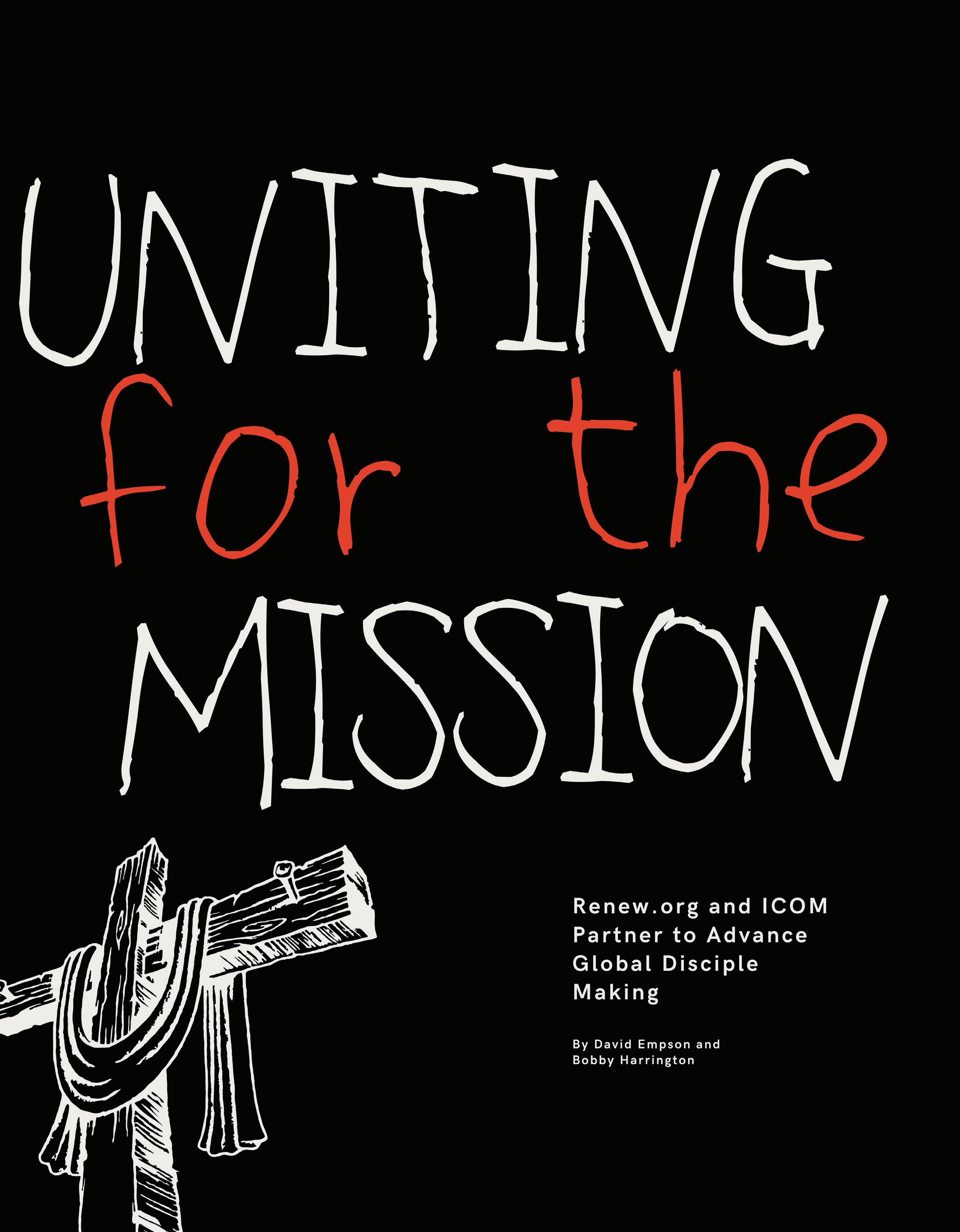
I n a significant move toward greater unity and impact within the Restoration Movement, Renew.org and the International Conference on Missions (ICOM) are launching a formal partnership aimed at strengthening disciple-making efforts both locally and globally.
We (David Empson, Executive Director of ICOM, and Bobby Harrington, Point Leader and CEO of Renew.org) are excited to lay out our vision for this collaboration and why now is the right time to come together.
During ICOM, I (David) love walking around the exhibit hall floor, reconnecting with old friends and meeting new ones. I caught that bug as a kid attending the NACC. It’s a thrill for me to chat with as many exhibitors as I can. So, at ICOM 2024 in Lexington, I saw Bobby Harrington at his booth and sat down to talk with him. Renew.org is doing great work helping Christian Churches articulate clear biblical theology and a disciplemaking focus. I’ve attended their events and always enjoy them.
During our conversation, Bobby said something like, “Someone told me that we ought to collaborate and work together.” I was thrilled—and a little surprised—to hear that. I had no idea he was considering it. We had a great conversation, though we knew there were logistics to work out. Could it work? We needed to talk and pray further.
To me, a collaboration between ICOM and the Renew.org Network seems natural. I told Bobby that ICOM and Renew are like two wings of the same plane. Renew focuses on making disciples at home in North America while ICOM focuses on making disciples abroad. We both believe in making disciples who make disciples. I loved the idea.
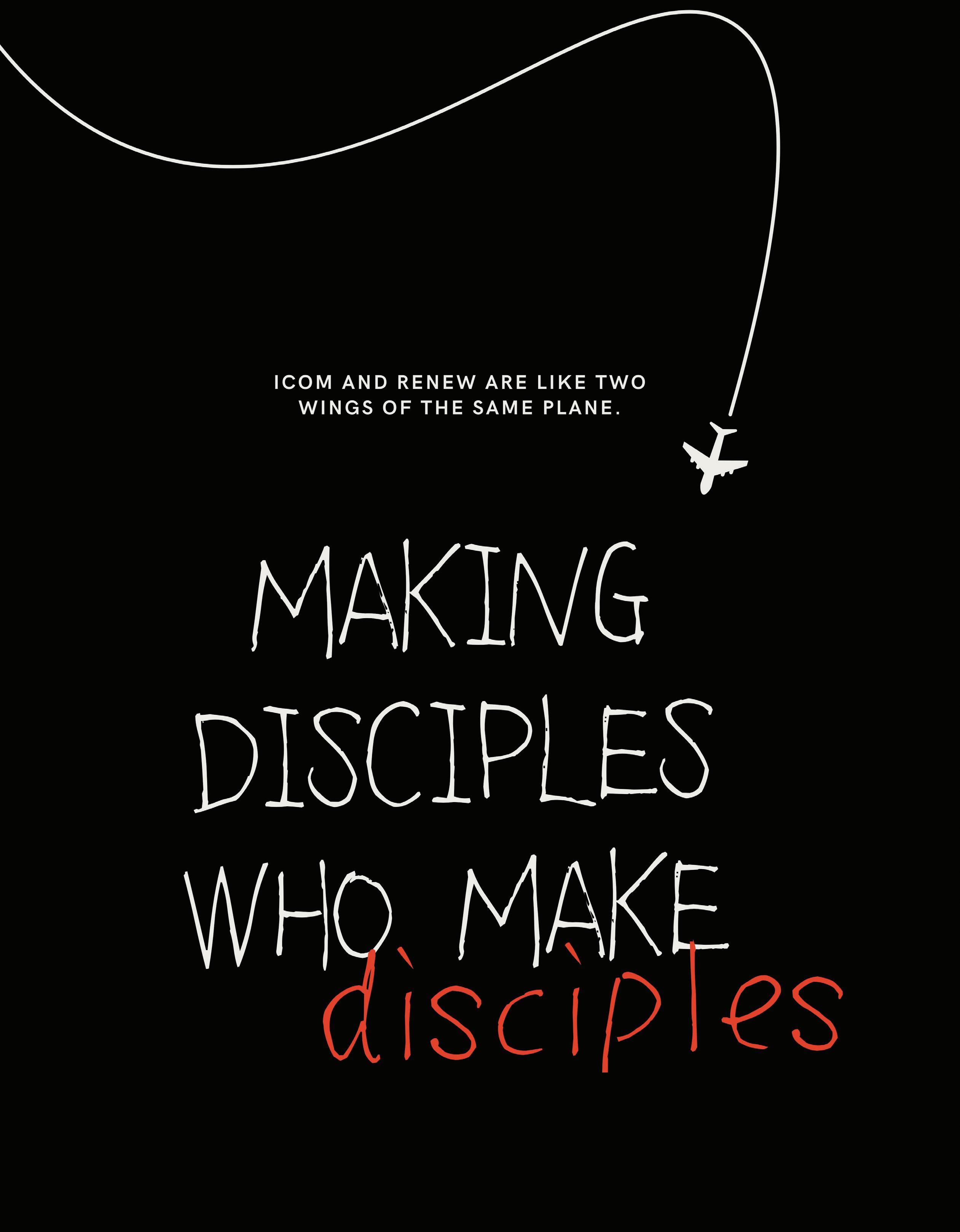
I (Bobby) also love attending ICOM. Like David, I enjoy walking the exhibit floor and meeting people. It’s inspiring to see so many humble, committed individuals who are passionate about reaching lost people around the world and meeting them at their point of need with Christian compassion. Before approaching David about the partnership, I thought, “These are our people. They truly believe that everyone needs the gospel of salvation in King Jesus.”
Renew.org Network was launched in 2018 as a renewal movement within Christian Churches to help us stay focused on the gospel, disciple making, and spiritual formation into the image of Christ, while avoiding the ditches of traditionalism on the right and progressivism on the left. Today, we have:
• A website full of resources.
• A growing national gathering every April.
• Over 430 lead pastors in our learning communities that meet every two months.
• Church training initiatives that teach churches how to transition to a disciplemaking focus.
• An online Certificate in Theology.
• A rapidly expanding Christian publishing arm.
• A church-planting division (renew-movement.org).
This partnership with ICOM helps bring a united focus—disciple making both at home and abroad.
Both Renew.org and ICOM are sounding the call to return to the core mission of the church: making disciples who make disciples. We see a growing trend within evangelical Christianity marked by softening convictions about salvation and eternal life as well as clarity on the hard teachings of Scripture.
We’re taking a different stand, emphasizing the centrality of the gospel and salvation in both North America and around the world. We believe people are lost without Jesus and we’re committed to making disciples grounded in strong theology—neither legalistic nor progressive but rooted in the best of the Restoration Movement.
As I (David) like to say, many churches have shifted their focus to surface-level concerns. You just don’t hear people talk about salvation the way they used to. This partnership is about putting first things first again—reaching lost people and discipling them to maturity—the two wings of the same plane.
ICOM has always valued collaboration. Here are a few examples:
1. Kairos Benevolence Fund (KBF): We’ve tithed 10 percent of our conference offering to KBF for years. KBF serves missionaries and ministers in need. We also co-hosted the Pressing On Conference with them for three years.
2. Waypoint Church Planters (formerly Virginia Evangelizing Fellowship): ICOM collaborated with Waypoint in 2015 and 2021 and will again in 2027 in Richmond, Virginia. Waypoint leveraged the momentum of ICOM to help plant over 30 churches.
3. Mulberry International, IDES, FAME and Lifeline Christian Mission: This fall, we’re collaborating on a major relief effort—gathering clothes, bagged meals, medical supplies, and more to send to Ukraine. After Natasha Reimer, Executive Director of Mulberry, returned from Ukraine with a moving report, we asked, “What if we could send a whole container?” Everyone jumped on board right away.
These are just a few examples. To us, this is what the church should be doing.

A major motivation behind this partnership is to connect local disciple making with global missions. I (Bobby) describe Renew’s model as “discipling lost people to salvation and discipling saved people to the fullness of Christ’s likeness.” ICOM and Renew agree that a strong local church creates a strong global church. Our mission is the same.
This new partnership will be highlighted at ICOM 2025 in Atlanta, where Renew will lead a new track all day Thursday, called “Driven by Disciple Making.” Speakers will include Mark Moore (from Christ’s Church of the Valley, Phoenix, Arizona), Bobby Harrington (Renew. org), Orpheus Heyward (Renaissance Church of Christ, Atlanta, Georgia), and others, providing top-tier training for ministry leaders.
There is increasing fragmentation in our movement. This partnership is a much-needed sign of unity. Though decentralized, our movement can and must collaborate. We’re all trying to follow Jesus faithfully and together, we can do more than we ever could alone.
We don’t see this as a one-time event. We’re aiming for an ongoing partnership. Plans are already in motion for ICOM 2026 in St. Louis with more developments to come.
Renew is also developing new material on Res toration Movement essentials: a new booklet on baptism, resources on the authority of Scrip ture, and relational disciple making, etc. All of these resources will be featured at ICOM and fu ture Renew forums.
I (David) am also working on a new book that brings together intergenerational voices across the movement. It’s time to remember what we believe, why we believe it, and how it shapes our mission.
In case there may be questions, while we collaborate we will continue to serve as separate entities focused on our separate missions. We are also completely financially independent. We seek to represent the best of collaboration that is part of our Restoration Movement heritage.
If you’re a local minister, elder, or disciple of Je


I serve as the publisher of Christian Standard, a Restoration Movement magazine that has been continuously published for nearly 160 years. I would like to ask if your church would consider being a mission partner with Christian Standard. Here’s why: Like many of you, I took for granted the influence that the Restoration Movement, Christian Standard, and Standard Publishing had on my life. I was a Jet Cadet, an Alphateen, a Bible Bowl team member, a Junior Church preacher, a youth choir singer, and a youth group leader. Moreover, I went to Ozark Bible College, was ordained in an Independent Christian Church, married a Christian Church girl, and enjoyed a life calling as a preacher and leader.
I’m thankful that our churches have grown and flourished over the years, but many of the institutions, colleges, publishing houses, conferences, and other critical ministries that once helped define us have begun to fade away. Christian Standard is the oldest of these and continues to boldly define our movement by sharing our stories and keeping us connected to each other, celebrating our independence while leveraging the power of our unity.
Everything that we produce—our magazine, our news, ministry resources, archives, and other helps—are available for free at christianstandard.com. The support of benefactors, strategic partners, advertisers, donors, and subscribers make this possible. We would like to extend a new kind of partnership to our supporting churches and we are asking for your church to participate in this partnership by remembering us in your mission budget.
We’ve created four levels of support for this effort:
1) Harvesting Church: A gift of $1,000.00 annually to Christian Standard
We will publish your church’s name in all 6 issues of our print and digital magazine. In addition, we will provide 20 subscriptions of our print magazine for the year that you can distribute as you see fit. Also, we will feature a 1,000 word “Church Spotlight” article that shares your church’s story.
— We are praying for 100 churches to commit to this level —
2) Cultivating Church: A gift of $500.00 annually to Christian Standard
We will publish your church’s name in all 6 issues of our print and digital magazine. In addition, we will provide 10 subscriptions of our print magazine for the year that you can distribute as you see fit.
— We are praying for 200 churches to commit to this level —
3) Watering Church: A gift of $250.00 annually to Christian Standard
We will publish your church’s name in all 6 issues of our print and digital magazine. In addition, we will provide 5 subscriptions of our print magazine for the year that you can distribute as you see fit.
— We are praying for 500 churches to commit to this level —
4) Sowing Church: A gift of $100.00 annually to Christian Standard
We will publish your church’s name in all 6 issues of our print and digital magazine. In addition, we will provide 2 subscriptions of our print magazine for the year that you can distribute as you see fit.
— We are praying for 1000 churches to commit to this level —
How will this money be used? Presently, we are very close to breaking even financially, but there are many other resources we would love to provide to our churches and readers—at no cost—that require additional funds to complete. This influx of donations that we pray will come through this campaign would help us realize those possibilities and put Christian Standard on solid ground for a healthy future. Our desire is to help churches, not be a burden to them, so we believe the donation scale we are proposing has a place for every church to offer support for this ministry without it being a financial burden. In so doing, we will not only continue the 159-year history of this unifying ministry but open new bridges for cooperation and offer best practices for strengthening our movement in the U.S. and abroad.
If you are willing, please respond to this email and I will send an invoice for your payment. Thank you for your kingdom service and your consideration of this request!!

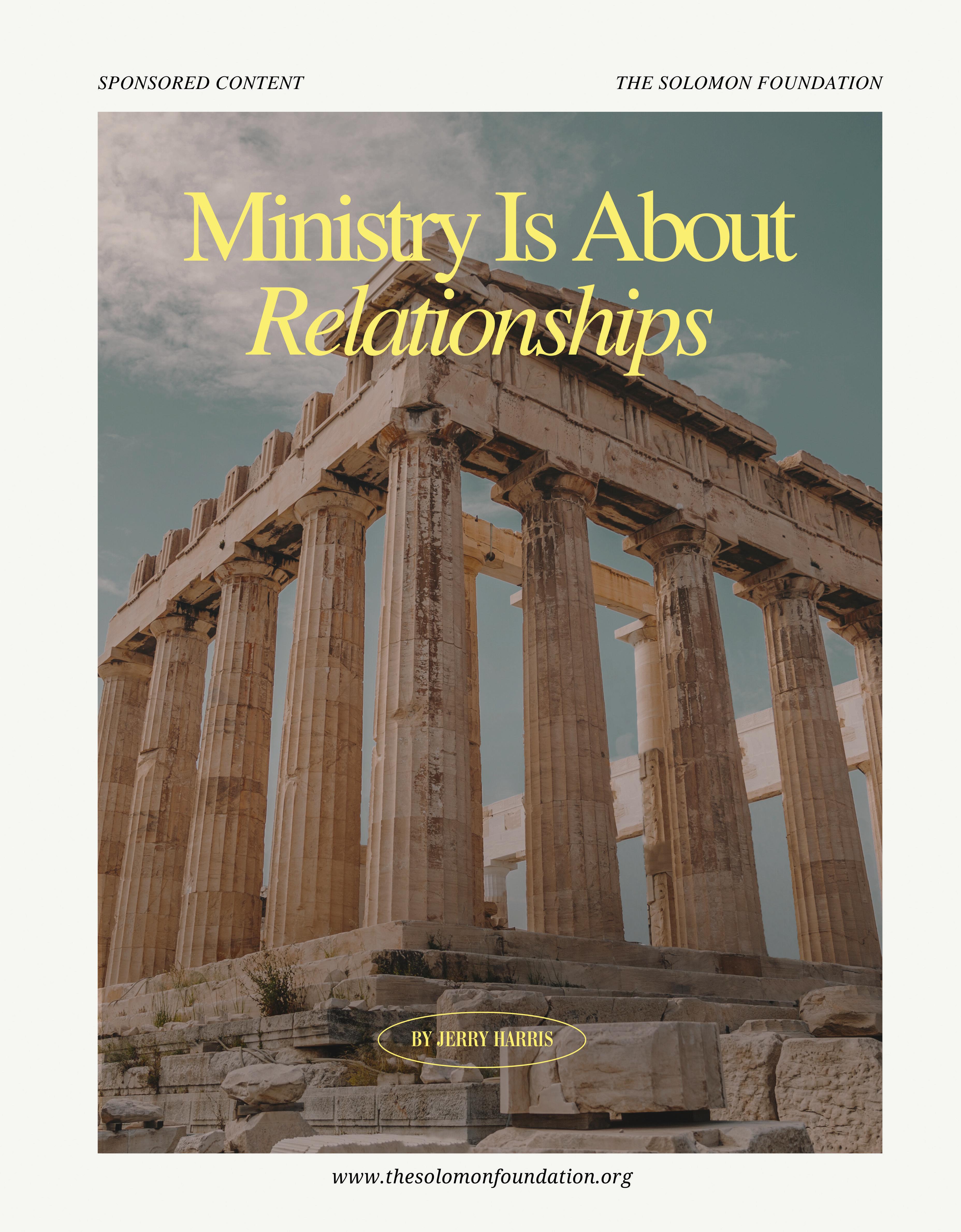
In the last chapter of his letter to the Romans, Paul gets very personal with specific people who serve and lead in the Roman church. At first, this passage doesn’t seem that interesting, and quite honestly, it’s an easy one to pass over. But remember, nothing in the New Testament is there by accident. Each part has deep meaning; we just have to discover it! The first interesting thing that occurred to me about this chapter is that he had only met three of the 29 people he names. In Romans 15, we learn that although Paul wants to visit Rome, he’s never been there; so it’s interesting to see how personal he is with specific people. Why is this important? First, the gospel is all about relationships; God’s relationship to us and ours to one another. Second, individual people, as well as individual churches and what they do, are important to God. He notices them and it’s personal to him! And third, since only three are known to Paul, yet he refers to 29, they didn’t have to be a friend of Paul to be important to God. That means 2,000 years later, you are important to God and what you do is important.
The first person Paul mentions is Phoebe in Romans 16:1-2. He wrote his letter to the Romans from Corinth in Greece, a long way from Rome in Italy, and sent Phoebe with the letter. Phoebe lived in a port city near Corinth, so she would have had to board a ship and take quite a difficult journey to deliver this letter. She would also be a stranger to the Romans, so Paul wants them to lovingly receive her with the letter. She’s introduced as a servant/leader and is courageous enough to make this journey on Paul’s behalf, depending on their hospitality and provision. This is someone of great commitment. Phoebe challenges me. Would I drop what I’m doing to undertake a challenging thing for the Lord? Delivering a scroll may not seem like such a great thing, but looking back, it might be the greatest
letter ever written. What if it wouldn’t have made it there? We can thank Phoebe for that! Some of us struggle with commitment or with a responsibility that might be less than comfortable, but the goal of spreading the gospel and the power of relationship can strengthen us for critical things.
Next, we meet Priscilla and Aquila in Romans 16:3-5a. They were Jews who lived in Rome until the Roman emperor Claudius expelled all the Jews. They migrated to Corinth where Paul made their acquaintance. Like Paul, they made their living making tents and so their common occupation started a great relationship. Paul probably lived in their home while he was in Corinth and they planted the church together. It wasn’t long before they were traveling with Paul on his missionary journey. On the way to Syria, they stopped at Ephesus and Paul left the couple there to help build that church. They taught the great evangelist Apollos there. When we catch up to them again, they are back in Rome, continuing to build the church since Jews were allowed back in after the death of the emperor. Paul even says that they both risked their lives for him. Priscilla and Aquila are the ultimate power couple of the New Testament. There was incredible power in that relationship to build epic churches on the world stage.
Then Paul greets Epenetus in Romans 16:5b. Paul describes him as the “first fruits” of Asia or Achaia which is in modern day southern Greece, below Athens. I think he deserves special mention because he was the first convert to Christianity in the region. It’s not always easy to be first; often it can be very difficult. You might have heard that the first one through the wall always gets bloody. Maybe you’re the first in your family and you have first-hand knowledge of that saying. Once again, we see the power of the gospel in the context of relationship.
The next person Paul mentions is Mary of Rome, in Romans 16:6. She stood out because of how hard she worked. Some might not be more talented, but they can work harder. Serving may be the way we live out the gospel in relationship.
Then we meet another power couple, Andronicus and Junia, in Romans 16:7. They were older in their faith than Paul. Obviously missionaries, they had been imprisoned for their faith and they may have even known Jesus. They were seasoned in ministry, having experienced hardship, but it only fostered endurance and built longevity. Maybe you go further back than the people around you. Maybe you have some war stories of sacrifices in the past that have resulted in the delivery of the gospel as well as priceless relationships. God knows what you’ve endured for that vision and your willingness to embrace new things, and the difficulty of sacrificing familiar ones.
The chapter continues with more names, mentioning groups that were meeting in the households of Aristobulus and Narcissus. Scholars believe that Roman 16 identifies at least five house churches. House churches were what church looked like in the 1st century and I think that there were many, many more. Romans was written close to AD 60 and the ancient historian Tacitus wrote that the number of Christians in Rome was “an immense multitude.”
There are more married couples, sisters, and a mother and son (possibly the son of Simon of Cyrene and Simon’s wife from Mark 15:21).
Craig Keener says that Romans 16 greets twice as many men as women, but commends twice as many women as men. Women do incredible ministry and Paul knew that well. Romans 16 teaches us that Paul wasn’t the only missionary out there. The church at Rome was probably established by regular Jewish people who were present on the Day of Pentecost when Peter preached the first sermon and took the message back to Rome. It was then reinforced by new ar-
rivals from the various persecutions of Jews and Christians who left Israel for safer places to live. There are some incredible stories here!
The point is, the Roman church was thriving but that didn’t mean it didn’t have plenty of challenges. And so do we. One of the main reasons Paul wrote this letter was that these people had trouble getting along. So do we. In Romans 16:19b, Paul gives some great counsel, saying to be wise or “excellent” about what is good. How are we doing at that? What are some good things you and I can be excellent with? He says to be innocent about evil. How hard is that in the world we’re living in?! It seems like evil is all around us and even in us. And often it feels like evil is winning. But here’s some good news: it won’t!
At The Solomon Foundation, we believe that ministry is all about relationships. We invest in them with both individuals and with churches. We have no desire to be your bank; we want to be your ministry partner and to be a part of your story as we carry the gospel together to a lost world that desperately needs it! It’s written in our core values and we live it out every day. Since our first investments and loans, TSF has been honored to play a role in helping over 400 churches grow by an aggregate of 225,000 people in attendance and over 110,000 people being baptized into Jesus Christ!
We serve a peaceful God, but when we live our lives being excellent about what is good and innocent of all evil, God will use that to crush the power of Satan; not under his feet but under our feet! (Romans 16:20a). We have more power than we can know or understand because we are the children of the Living God, joint heirs with Jesus Christ, and filled with the Holy Spirit to accomplish the mission of bringing God’s lost children home. And every time that happens, the bottoms of our shoes are getting closer to Satan’s head!
Jerry Harris is publisher of Christian Standard

‘MARK SCOTT ALWAYS DELIVERS’


Tim Mitchell Excellent article. Mark Scott always delivers amazing illustrations. [“Spiritual Warfare: Winning the Fight When We Can’t See the Enemy,” by Mark Scott, July/August 2025, p. 40]
Derrell Brame Thanks Mark! Very good! I appreciate the Word!
‘THANKS FOR REPRODUCING EXCELLENT ARTICLES FROM THE PAST’

Michael Bratten Excellent article. Thanks for reproducing excellent articles from the past. [“Satan’s Work Today,” by Jack Cottrell, July/August 2025, p. 46].
‘A GOOD REMINDER’

Michael Bratten A good reminder, Shawn. Thanks. Since Satan cannot win against the Almighty, he does what he can to get ‘at his kids’. It’s the one thing, I believe, that causes our Lord the most grief. . . kids who have given in to sin and will not return. [“The Art of (Spiritual) War,” by Shawn McMullen, July/August 2025, p. 6]
‘NEEDED MESSAGE’

Reta Shepherd Needed message. Wish I could spread it everywhere. [“The Inevitable Rabbit Hole: Countering Satan’s Impact on Young People Through Social Media,” by Ricky Altmiller, July/August 2025, p. 58]
‘AN INSPIRING LIFE’

Promise Fambisai An inspiring life dedicated to change other people’s lives. May his work continue to have an impact in Zimbabwe and Africa. [“Community Change Brings Life Transformation,” by Laura McKillip Wood, July/ August 2025, p. 22]
‘APPRECIATE YOUR FOCUS’

Tom Alexander I appreciate your focus on compassion and the need for Christian community holistic healing. The church is still God’s great gift to all of us for fostering a healthy, blessed life. Thank you! [“Spiritual Warfare & Mental Health: A Christian Counselor’s Perspective,” by Doug Spears, July/August 2025, p. 70].
‘A WONDERFUL MAN’


Joe Cooper Ben spoke in churches where I preached several times. He also led workshops in a convention when I presided. We even worked together on a Christian cruise. Both he and Miranda were faithful, devoted, and extraordinary people. I cherished their friendship! [“Out From Darkness,” by Ginny McCabe, July/August 2025, p. 74]
Debbie Mitchell I remember going to a presentation with Ben many years ago. It truly opened my eyes to Satan’s wiles – and I quit reading horoscopes in the newspaper. Amazing man!
‘GREAT POINTS’

Michael Bratten Great points for confirmation. Being oneself, instead of imitating someone else, is CRUCIAL to the persons hearing. Thanks for the article! Well done. [“Preaching with Your Own Voice,” by Chris Philbeck, July/August 2025, p. 32].
‘GREAT THOUGHTS’
Danny Mitchell Very well spoken. Great thoughts for the Lords Supper. [“Truths That Hold Us,” by Doug Redford, https://christianstandard.com/2025/06/truths-that-hold-us/]
‘BRAVO!’
Jon Weatherly Bravo! It’s great to see solid advice based on research and not baseless anecdotes and homiletical tropes. [“Ten Ways Parents Can Increase the Probability They Pass Down the Faith … According to the Data,” by Tyler McKenzie, https://christianstandard.com/2025/07/ten-ways-parents-can-increase-theprobability-they-pass-down-the-faith-according-to-the-data/]
Michael Bratten Such a timely article. Thanks!
Diane Mitchell Love it!
Jess Florence Really good stuff here! I appreciate the research and insight.
‘EXCELLENT READ!’
Steve Reeves Excellent Read! [“Cane Ridge Meeting House: A Place Worth Seeing,” by Rick Cherok, https:// christianstandard.com/2025/07/cane-ridge-meeting-house-a-place-worth-seeing/]
Cheryl Winter So helpful. Thank you. … It’s fun to experience sites of our movement’s origin spread across the Midwest. I’ve been 77 years in Restoration churches and love what we stand for though it’s great to see other churches getting back to the Bible now. May God bless this country with another revival such as occurred at Cane Ridge!
Mike Gillespie I’ve been blessed to make numerous visits to Cane Ridge to ponder its historic events and significance to Christ’s church and to America. … It strikes me that, if we could move back closer to the simplicity and forthrightness of those days, today’s church would be far better off!
‘A MOST EXCELLENT MESSAGE IN TODAY’S TROUBLED WORLD’
Charles A most excellent message in today’s troubled world, Hebrews 11:1. May your faith be increasing and your hope fulfilled. [“The Slow Work of God: Why Spiritual Growth Takes Time,” by Lillian Hart, https:// christianstandard.com/2025/07/the-slow-work-of-god-why-spiritual-growth-takes-time/]
Reta Shepherd Excellent message
‘THANK YOU’
Charles Thank you David for expounding upon repentance. How can change occur if one does not first acknowledge their shortcomings? [“The Forgotten Word of Acts 2:38 (Part 1),” by David Faust, https:// christianstandard.com/2025/07/the-forgotten-word-in-acts-238-part-1/]
‘A GOOD RENDERING’
George Wolfe This is a good rendition of this parable. I’m going to use the thoughts of it in a meditation that I’m going to give. Thank you, Mr. Doug Redford. [“He Was Talking About Himself,” by Doug Redford, https:// christianstandard.com/2025/07/he-was-talking-about-himself/]
‘TIMELY’
Annabelle Schertzinger This is so timely, having arrived in my inbox on the morning when tsunami waves from the earthquake off the coast of Russia were expected to hit the west coast of the U.S. Truly God is our refuge. [“In Search of a Hiding Place – Psalm 46,” by Dan Schaeffer, https://christianstandard.com/2025/07/in-search-of-ahiding-place-psalm-46/].
‘LACKING IN THE LIVES OF TOO MANY PEOPLE’
C. Daer Platt Thanks for this, especially the line: It isn’t just “turning from,” but “turning to.” That’s what’s seems to be lacking in the lives of too many people …. Maybe it is important, not just interesting, that in the Gospel accounts and the reports of conversions in Acts the command is not “repent from,” but just “repent.” [“The Forgotten Words in Acts 2:38 (Part 2),” by David Faust, https://christianstandard.com/2025/07/forgotten-words-in-acts-238-part-2/]
‘HELPFUL INFORMATION’
Javier Garrett I just like the helpful information you provide in your articles. [“The IRS and the Johnson Amendment: Will Your Church Endorse Politicians?” by Tyler McKenzie https://christianstandard.com/2025/08/ the-irs-and-the-johnson-amendment-will-your-church-endorse-politicians/]
Wyett H Colclasure II Thanks for the detail on how the Johnson Amendment came into being. I knew the motive behind it but not the naked political tactic involved.
Ruthetta Gretchel Interesting article but I was saddened to hear you say you’ve only voted a handful of times.
Jim Burkhart I teach an adult class on Sunday morning. I have strong political convictions, but I try to avoid letting those convictions color my teaching. My political convictions have changed over my 90 years, but I’ve always strongly believed in separation of religion and state, because I believe connecting the two makes for corruption in both.
‘CONGRATULATIONS’
Bob Stacy Congratulations to you as you take upon yourself a very important and extremely difficult position. May God bless you richly in your new role at Point. [“Point University Inaugurates Eighth President,” by Rick Cherok, https://christianstandard.com/2025/08/point-university-inaugurates-eighth-president/]
‘OUR COLLEGES NEED CONTRIBUTORS’
Bob Stacy I am so thankful for men who see the need for such a contribution as this. I could only wish there were many such Christian leaders. Our colleges need contributors like this. My thanks to Mr. Osborne for the vision he possesses and to GLBC for her years of faithful service. [“Great Lakes Christian College Receives Largest Gift in School’s History,” by Rick Cherok, https://christianstandard.com/2025/08/great-lakes-christiancollege-receives-largest-gift-in-schools-history/]
For space, length, readability, relevance, and civility, comments sent to Interact may remain unpublished or be edited. We do read them all and prayerfully take them to heart. If we publish your comment, we will try to honestly reproduce your thoughts with those considerations in mind. Where we disagree, let’s continue to keep P.H. Welshimer’s words in mind to “disagree without being disagreeable.”
@chrstandard @christianstandardmagazine @christianstandardmagazine cs@christianstandardmedia.com
If you do not receive Christian Standard’s weekly e-newsletter, you missed the following news articles in the free July and August 2025 newsletter emails.
David Faust’s weekly column, “Consider This” | https://christianstandard.com/category/news/
“Kentucky Christian University Marks Historic Milestone,” by Rick Cherok
July 1 – https://christianstandard.com/2025/07/kentucky-christian-university-marks-historic-milestone/
“Ten Ways Parents Can Increase the Probability They Pass Down the Faith … According to the Data,” by Tyler McKenzie
July 8 – https://christianstandard.com/2025/07/ten-ways-parents-can-increase-the-probability-they-pass-down-the-faith-according-tothe-data/
“Cane Ridge Meeting House: A Place Worth Seeing,” by Rick Cherok
July 15 – https://christianstandard.com/2025/07/cane-ridge-meeting-house-a-place-worth-seeing/
“The Slow Work of God: Why Spiritual Growth Takes Time,” by Lillian Hart
July 22 – https://christianstandard.com/2025/07/the-slow-work-of-god-why-spiritual-growth-takes-time/
“In Search of a Hiding Place – Psalm 46,” by Dan Schaeffer
July 29 – https://christianstandard.com/2025/07/in-search-of-a-hiding-place-psalm-46/
“Karen Rees’ New Book Points to the Good Book,” by James Thompson
August 5 – https://christianstandard.com/2025/08/karen-rees-new-book-points-to-the-good-book/
“The IRS and the Johnson Amendment: Will Your Church Endorse Politicians?” by Tyler McKenzie
August 11 – https://christianstandard.com/2025/08/the-irs-and-the-johnson-amendment-will-your-church-endorse-politicians/
“Advice for Parents of University Students,” by Mike Armstrong August 18 – https://christianstandard.com/2025/08/advice-for-parents-of-university-students/
“Demonology,” A Christian Standard Article from February 15, 1936, by Edwin R. Errett August 24 – https://christianstandard.com/2025/08/from-the-archives-demonology/
“Point University Inaugurates Eighth President,” by Rick Cherok August 26 – https://christianstandard.com/2025/08/point-university-inaugurates-eighth-president/
“Great Lakes Christian College Receives Largest Gift in School’s History,” by Rick Cherok August 26 – https://christianstandard.com/2025/08/great-lakes-christian-college-receives-largest-gift-in-schools-history/
“The Church’s Role in Supporting the Disability Community,” by Jenny Smith August 28 – https://christianstandard.com/2025/08/the-churchs-role-in-supporting-the-disability-community/
by david faust
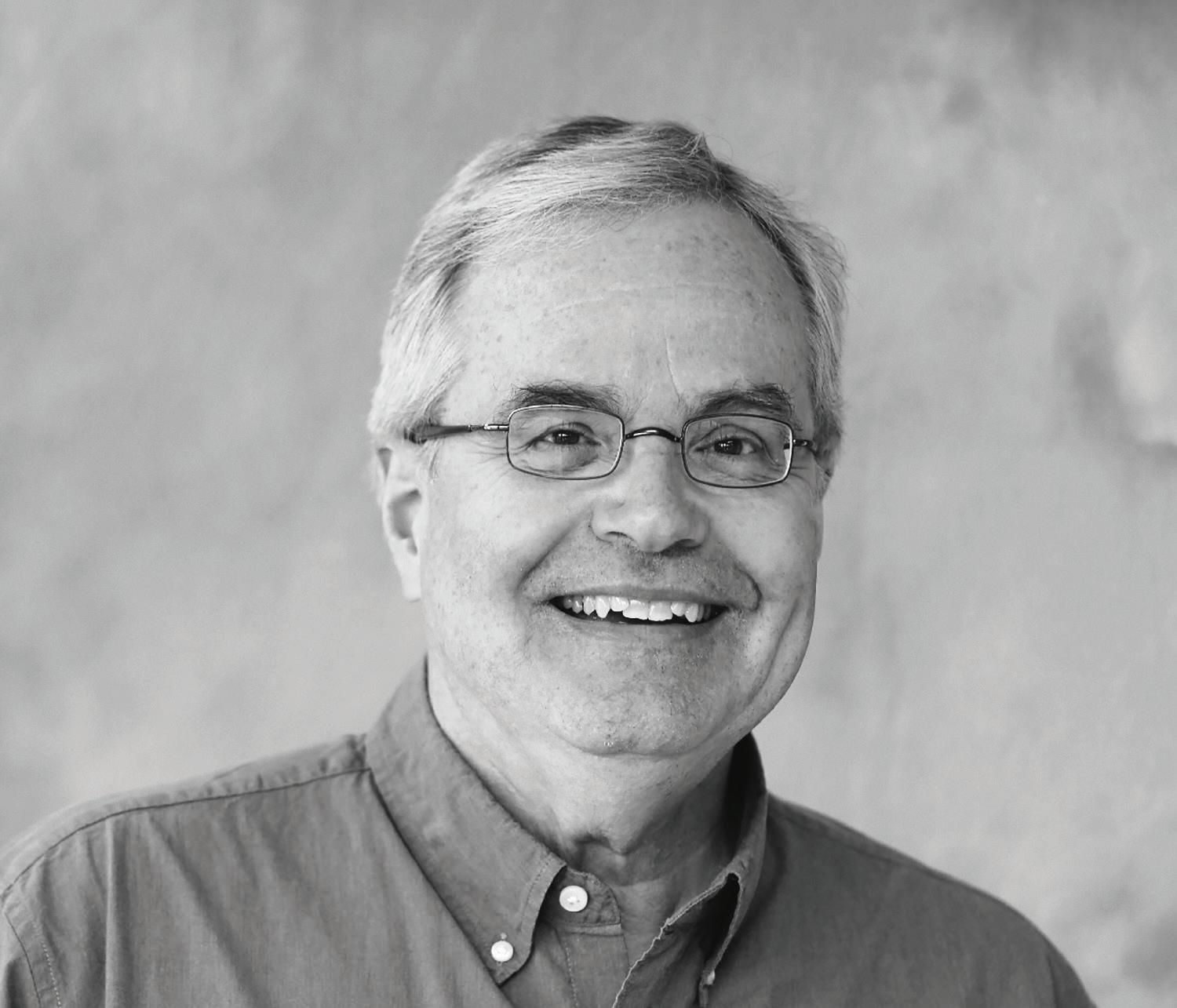
Years ago when I was engaged to be married, my future father-in-law looked me in the eye and said, “Why do you want to marry my daughter?”
I stammered, “Because I love her.”
He said, “What do you mean when you say that?”
I was flustered. I didn’t realize there were going to be any follow-up questions!
Love is difficult to comprehend, but we can’t live without it.
A person without love is like a tire without air or a car without fuel. Jesus said, “By this everyone will know that you are my disciples, if you love one another” (John 13:35, New International Version). Love should be a distinguishing characteristic of Jesus’ followers.
According to Jesus, the greatest commandments are to love God and love our neighbors (Matthew 22:37-40). The apostle Paul put love first in the fruit of the Spirit (Galatians 5:22); and in 1 Corinthians 13 (which is far more than a sweet little poem to read at weddings), he made several hard-hitting points.
• Without love, our words mean little (1 Corinthians 13:1) You can be the life of the party and a clever conversationalist. You can be an eloquent speaker who communicates fluently in different languages. But without love, you’re just making noise.
• Without love, knowledge leaves us empty (1 Corinthians 13:2). You can be a scholar like Einstein or an inventor like Edison. You can use logical arguments and give stirring lectures. But without love, intellectual knowledge means little. “Knowledge puffs up while love builds up” (1 Corinthians 8:1).
• Without love, generosity is incomplete (1 Corinthians 13:3). Gifts are hollow if they aren’t motivated by love.
Is love mainly affection—a warm fuzzy feeling? Is it mainly attraction—sexual magnetism and romance?
The Greek word translated “love” in 1 Corinthians 13 is agape, the love of costly commitment. Agape appears in John 3:16, which says, “God so loved the world.” And in Ephesians 5:25: “Husbands, love your wives.”
Someone defined love as “the zealous, selfless seeking of another’s true good.” It’s more than mere affection or attraction. It’s action—choosing to act in the best interests of others.
Where does love come from? The Bible says, “God is love” (1 John 4:16). While love isn’t God’s only attribute, it’s an important characteristic. And the very existence of love provides subtle but compelling evidence for the existence of God.
If we are merely the result of the impersonal plus time plus chance . . . if human life is simply about the survival of the fittest . . . then why do we feel the impulse to be unselfish and put someone else’s interests above our own? Someone said, “Love is wanting to do what you don’t want to do . . . because you want to.”
C. S. Lewis argued that if you were walking by a lake and you saw someone drowning, two competing impulses would arise in your mind: (1) You would feel the impulse to dive in and try to save the person who is drowning, but (2) Your natural instinct for self-preservation would tell you not to dive in, but to keep yourself safe. Why do we realize it’s more noble to risk our own lives and try to save someone else?
Jesus said, “Greater love has no one than this: to lay down one’s life for one’s friends” (John 15:13). That’s hard to explain if we are merely the product of impersonal evolution. But love makes sense if we are created in the image of God.
Love has profound implications for apologetics. For one thing, love should be our motivation for sharing and defending the faith. “Christ’s love compels us” (2 Corinthians 5:14). Peter wrote, “Always be prepared to give an answer to everyone who asks you to give the reason for the hope that you have. But do this with gentleness and respect” (1 Peter 3:15). The goal isn’t to quarrel and bark instructions, but to treat others with gentleness and respect.
Love has persuasive power. Compassion makes our arguments more convincing, but without love, our arguments sound hollow. Sheldon Vanauken wrote in his book,
A Severe Mercy, “The best argument for Christianity is Christians: their joy, their certainty, their completeness. But the strongest argument against Christianity is also Christians—when they are somber and joyless, when they are self-righteous and smug in complacent consecration, when they are narrow and repressive, then Christianity dies a thousand deaths.” It’s trite but true: people won’t care how much we know unless they know how much we care.
George Washington Carver said, “How far you go in life depends on your being tender with the young, compassionate with the aged, sympathetic with the striving and tolerant of the weak and strong. Because someday in your life, you will have been all of these.”
I find the evidence for the Christian faith reasonable and compelling. I’m convinced the Bible is true and it puts my faith in Jesus on solid ground. But I also believe because I have seen God’s love in . . .
• medical professionals and volunteers who care for the sick.
• jail ministers who visit inmates week after week.
• friends who patiently care for a spouse suffering with dementia.
• parents who provide foster care for kids needing stable homes.
• generous givers who share their resources with others in need.
• hospitals, schools, and clinics established in Jesus’ name around the globe.
When I see God’s love at work, it makes it easier for me to believe.
If you are a follower of Jesus, are you loving others well? Are you listening to their questions? Do you care about their hurts?
Do others see in you the astonishing, redemptive, sacrificial love of Jesus Christ?
This article is adapted from a video presentation by David Faust called “The Apologetics of Love” created for KAPOL (Kontakt Apologetics, https://www.gokmusa.org/)—a ministry led by Brett Seybold that serves skeptics and those in post-Christian societies through personal evangelism, training Christians and congregations, and cultural engagement. To view this video and others, go to www.youtube.com/@ KAPOLvideo/videos.
Dave Faust serves as contributing editor of Christian Standard. He has written a weekly lesson application for our Bible study material for several years. Previously, he was editor of The Lookout magazine. Dave presently serves as senior associate minister with East 91st Street Christian Church in Indianapolis, Indiana.
